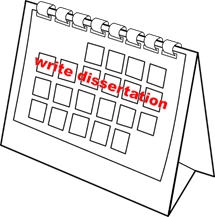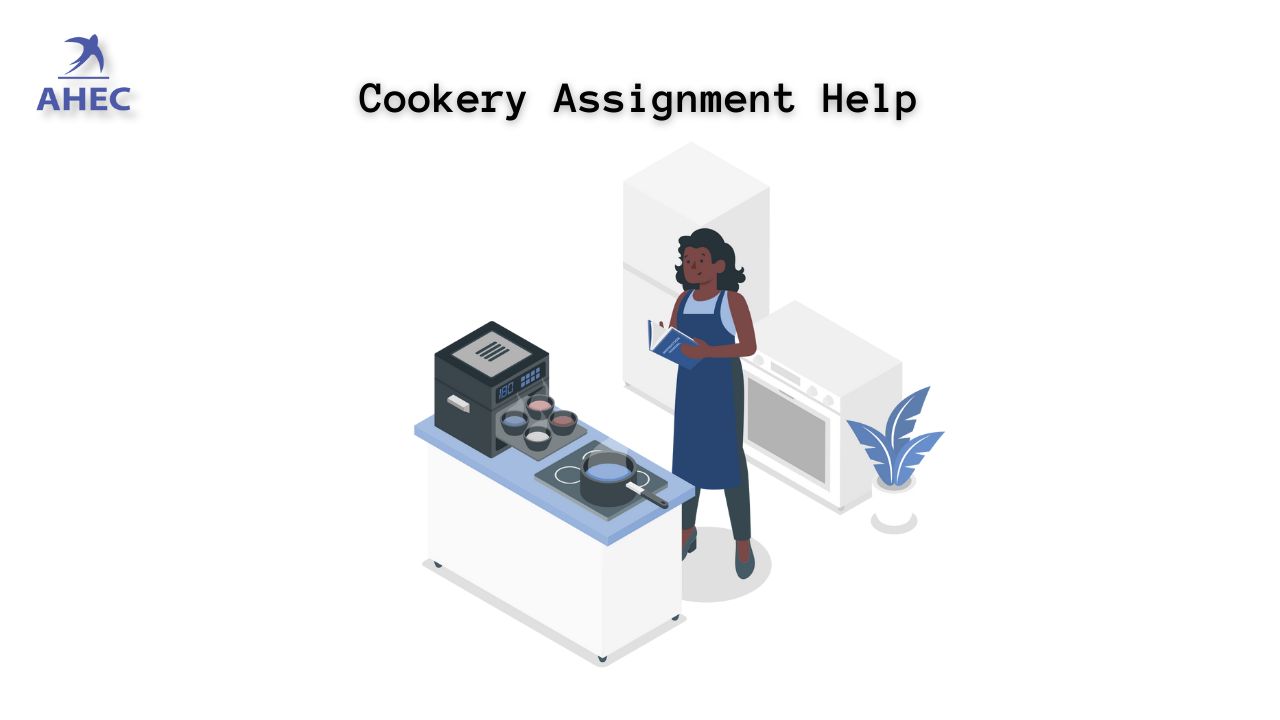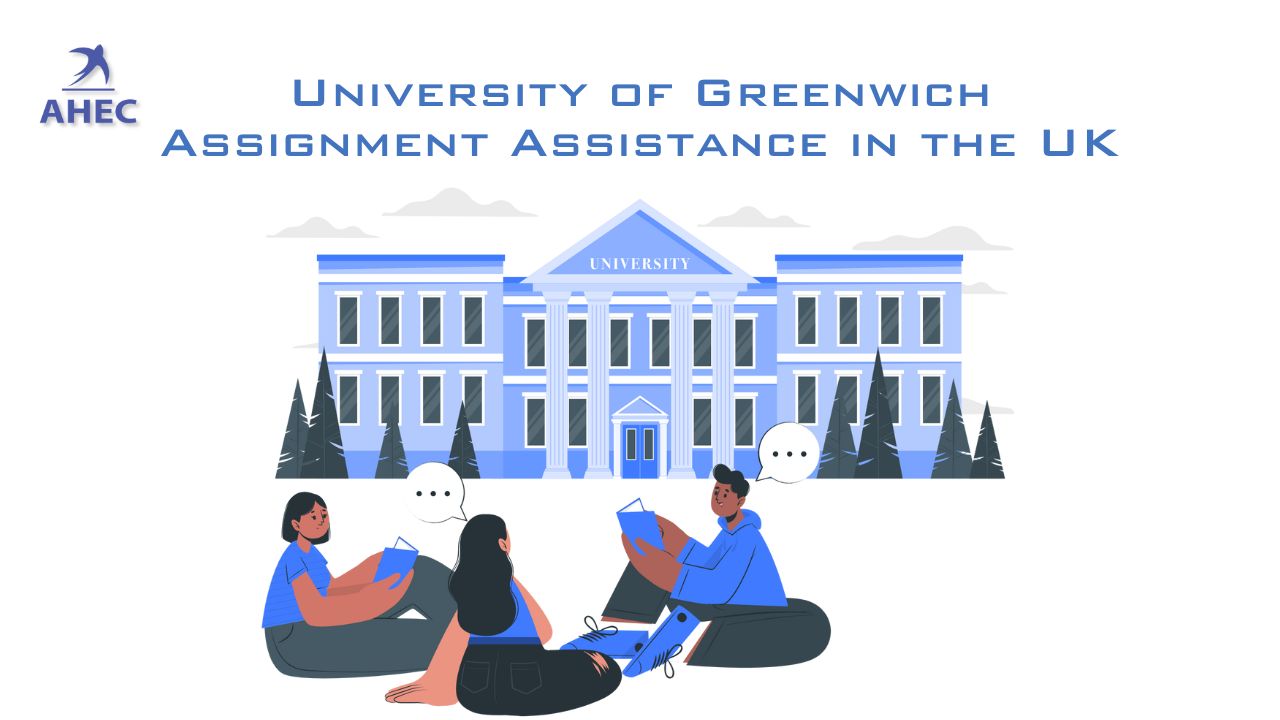- How it works


How to Write a Dissertation in Ten Days or Less
Published by Owen Ingram at January 27th, 2023 , Revised On April 19, 2024
Can you Complete your Dissertation in Ten Days?
Most students struggle at some point with deadlines, and we regularly get asked questions such as ‘Can you write a dissertation in a month?’ and ‘Can you write a dissertation in three days?’ We do not judge why you are in this situation, we’re here to help you get your dissertation done. The answer to the questions is yes. But of course, the less time you have, the more pressure you are under.

How Long Does it Take to Write a 10,000-word Dissertation?
This is a common question, as is “How long does it take to write a 7,000-word dissertation?” There is no figure in hours or days that answers this; it differs for everyone. “Is it possible to write a 10,000-word dissertation in two days?” Well, yes. But you will only find out if you can do it when the two days are up. You need to get started immediately, follow our advice and use our dissertation guides . But we are not claiming it’s easy.
Can I Complete my Dissertation in 3 Days? How Fast do I Need to Write?
If you have to produce 10,000 words in ten days, you have to average 1,000 a day. If you have two days, then 5,000 per day and if you work on it for 12 hours each of those days, you need to turn out 417 words per hour. A tall order, but it can be done. Do not let panic or pressure overwhelm you; and remember, it is perfectly acceptable to ask for help . You can stop asking your friends ‘How quickly can you write a dissertation?’ You are going to show them how quickly.
Can I Really Produce 10,000 Words in a Week?
How long d oes it take to write a 10k word dissertation? To give you some perspective, most people speak this many words in a day with no effort. You probably have more than enough words in your notes. It will make a big difference if you have your research project results analysis done already. If this is the case, you ‘only’ need to write them up. If you already made a good start but you are having trouble progressing, maybe you just need to focus on writing up your findings or certain chapters or areas.
You might think your notes are messy and disorganised or that they lack the right academic sound. Regardless, do not think of this task as producing all 10,000 words, rather, it is laying out your notes, organising them, and giving them a more formal, academic tone.
Can you Write a Dissertation in a Day?
Can you write a dissertation in a day? This is surely the most demanding academic writing challenge. It means 100% focus and work: Type up your notes, ensuring they have an academic/formal tone to them. Keep going, section by section and as it grows, you will start to see your dissertation appear.
Preparing to Write your Dissertation Fast
Prepare to start work.
You know your subject well, and you have probably written many essays on it by now. The main difference is that this assignment is longer. So, let’s get started. You need to prepare well; normal life can be suspended for the time you will spend working. The first preparations to make concern you and where you are going to work.
Distractions and Interruptions
Turn off your phone and avoid TV. If you are really serious, you will really do it. When you procrastinate or allow yourself to be distracted, what do you do? Gaming? Staring out of the window? Baking? Make these things difficult or impossible to do. Be aware of something called productive procrastination. This is when you do something productive but it’s not what you are meant to be doing. Do not mistake activity for productivity. When you find yourself vacuuming around your desk, snap out of it.
I’m Writing my Dissertation all Week. Quiet, Please
Some people can work with music playing, and some need silence. Listening to words, whether sung or spoken, can distract you when producing text. If there is something that will help you, such as instrumental music, use it. Make sure everyone knows what you are doing and ask them to leave you alone (except for bringing you food and drinks). Can someone else handle your duties and obligations for a while?
Create a Work Area
Set up a workplace and de-clutter it. Remove irrelevant books and anything you can fiddle with. Gather all your materials: this means textbooks, notes on paper and in digital form. Your research is likely over, but you will need everything to hand.
Give all materials specific places and keep them there. As you use them, you will remember where they are. Putting them down in different places will mean time lost looking for them, which will add frustration to the work.
Do All of your Legwork Before Starting
Getting up and walking away from the desk unnecessarily uses time you do not have. Do not let shopping trips interrupt your work. If you do not have enough food and supplies in before starting, get them first. Certain foods/snacks can help get you through, maybe you can suspend your usual health regime for a while. You need to feel comfortable in this. But do not overdo the caffeine or sugar .
Make a Work Schedule
Look ahead at your available time and make a schedule. If you work 21 hours on the first day, you might find yourself burnt out the next day. Sleep when you have to, work when you feel good. How long can you realistically work each day? Be careful not to create an unrealistic schedule, you will not keep up to it and will become demoralised. Remember that writing the dissertation is only 1% of your entire course; it is acceptable to get help at this late stage.
Where to Start
Start here – write an outline.
As well as a work schedule, you need a dissertation structure . You may be tempted to think that making an outline for your dissertation is extra work, that it would be quicker to just start writing. That would be like going on a driving tour to every European country with no plan. Without regular destinations, you will drift about aimlessly.
You can save time by focussing only on the main parts of the dissertation. If you run out of time, it will be better if the parts not completed are the less significant ones, although ideally nothing should be left unfinished. This is an exercise in prioritisation: Write the most valuable, points-scoring parts first.
Sacrifices May be Necessary
With a tight time limit, you might have to make sacrifices. People with the luxury of time will spend a day or more on just the table of contents or references section . You might not have this option. The focus has to be on the rapid production of text and its quality; things like detailed formatting and page layout will be secondary.
Prioritising your Order of Work
In the detailed plan below, skip the greyed-out parts to start with. You can use this to create an outline by adding a note under each part of the different sections stating what you are going to include there. This is where the job starts to appear less daunting; 10,000 now becomes 2,000 for this section, 1,000 for that section… The mountain becomes a set of smaller hills. And the introduction section can be written after the body, it is easier and quicker that way.
Hire an Expert Writer
Orders completed by our expert writers are
- Formally drafted in an academic style
- Free Amendments and 100% Plagiarism Free – or your money back!
- 100% Confidential and Timely Delivery!
- Free anti-plagiarism report
- Appreciated by thousands of clients. Check client reviews

| 1 |
| 2 |
| 3 |
| 4 |
| 5 |
| 6 |
| 7 |
| 1 Brief description of the topic and main problem |
| 2 |
| 3 The of the investigation |
| 4 |
| 5 Organisation of the research |
| 1 Introduction |
| 2 Summarise & combine findings from your sources |
| 3 Review & evaluation of sources used |
| 4 Critical assessment of the literature |
| 1 |
| 2 Philosophical approach |
| 3 |
| 4 Research limitations |
| 5 Ethical considerations |
| 6 |
| 1 Statement and analysis of the results |
| 2 Comparison of the obtained results and initial goals/questions |
| 1 |
| 2 Comparison of the results with the findings of prior researchers |
| 3 Suggestions regarding the use of the obtained findings for the further development of the topic and future investigation |
| Build this as you go along. |
| 1 Statement of the IRB forms (for example, the forms of the informed consent) |
| 2 Information regarding the instrumentation |
Writing the Dissertation Body
When you have an outline, you need to put some meat on those bones and build a body. Working from start to finish may be best (skipping the introduction), but the order you work in is your choice. If your notes are not in order, a quick way to identify notes that apply to the different sections is to mark them with different coloured highlighters as in the table above. This will draw your eyes to the relevant notes quickly. You can do this on your computer screen by highlighting similarly.
After the main body, the introduction is next. This will be easier to write because all the information will be fresh in your mind. What next? The appendices or the parts at the front? This should be your decision based on remaining time.
Good Practices for Writing your Dissertation
Ignore spelling and grammar.
Do not pay attention to spelling, grammar, and language rules at this stage. Attending to spelling and grammatical details as you work will distract you and spoil your flow. Spelling and grammatical mistakes do not matter in a work in progress. You can turn checking functions off until you reach the editing and proofreading stage. Concentrate only on writing up your notes, do not switch between tasks.
Attend to One Part of the Dissertation at a Time
Constantly switching between research, writing, and tidying up the reference section is inefficient. Each time you switch, your mind needs time to catch up then settle into that activity. By focussing, we mean you should do all the analysis in one session until it is finished, all the writing of major sections in another, and sorting out the reference section can be done in one sitting. Less switching saves time and usually turns out a better job.
Take Regular Short Breaks

Save and Back up Routinely
When you leave the desk, click to save your work. Also do this after any burst of writing, and at regular intervals. Back up your work on another drive too. This is one of the most important things you will write. Treat it as the valuable document that it is.
For when you resume work, make sure you know where you left off, highlight it if that helps. When you come back to your work the next day, sometimes you can’t remember where you were; it can be difficult to resume the same line of thought. A habit of Ernest Hemingway was to leave an unfinished sentence to come back to so that he could…
Have a Strict but Simple Method of Noting Sources
Every time you quote or paraphrase something, note the source. Use a simple referencing technique while writing that does not demand much time. One such method is for the first in-text reference, just put (1) after the quote, use (2) for the second and so on. Start a list of sources that correspond to each number. You could highlight the numbers in a specific colour so you can attend to them later and not miss any. Missing just one reference, even accidentally, will still count as plagiarism . Before you start, be absolutely clear whether you are including a reference list or bibliography . Completing your list according to the required style ( Harvard , Chicago, etc.) can be done in one session.
Get a Qualified Appraisal of your Work
You will need someone to read your finished work. Having it read by someone unfamiliar with the subject and the structure of dissertations will be unproductive. Ideally it should be someone who understands the topic. And these days that person need not be physically present; you can email your draft to someone to get an opinion on changes & improvements .
Writing your Dissertation in Days
We are not going to sugar-coat the task of producing a dissertation in days rather than months and weeks. It is not easy, and regardless of what caused you to have such a short time remaining, it puts all your work in jeopardy. When someone asks us “Can I complete my dissertation in three days?” we have to answer yes, you can, but… It depends on the individual, how much work you have done so far, your personal circumstances, your other obligations, how much of those three days can you dedicate to the task.
How to Write a Dissertation Fast Checklist
Frequently asked questions, can i write my dissertation in under a week.
The short answer is yes but there are several factors to consider that may help or hinder you. Few people have the support around them to allow them to drop all commitments and focus on just one task. Also, few people will have taken on such a large a task in such a short time before, and might become overwhelmed.
The dissertation is where your study course culminates; all the time, effort, and expense you have invested should come to fruition here. This might not be a good time for maybe I can do it . Maybe you can make it to the bank before it closes. No? Oh, well, you can go tomorrow. Maybe I can write 10,000 words in a week. If the answer is no, the consequences are more serious.
This guide and all the other dissertation guides on this site are here to help you with every aspect of dissertation writing. You can also contact us directly through the chat box or Whatsapp.
I have to write my dissertation in three days. Where do I start?
Start by getting organised. Gather all the materials you need, create a work area, get rid of distractions, and if possible, delegate any obligations or chores to someone else for the duration. Then read this guide from the start. If you need further help when you are deep into the writing, just ask us. We exist just for this purpose. Our team and expert writers have handled almost every kind of dissertation emergency.
Can I do my research, analysis, and write my dissertation in ten days?
The more time you have, the better. But carrying out the research and analysis in such a short time will be very demanding. It can be done though; our team can do this in under a week. You would need a great level of support around you and an impressive level of determination and focus. If you supply the determination, we can provide the support .
What helped you finish your dissertation quickly?
To finish your dissertation quickly, prioritise tasks, set realistic goals, maintain a consistent work schedule, minimise distractions, seek feedback from advisors regularly, and break down the writing process into manageable chunks. Use effective time management techniques, such as the Pomodoro Technique, and stay organised with thorough planning and research strategies.
You May Also Like
Students around the globe always make sure to run assignments or other academic work through an online plagiarism checker. Still, the question arises over here,
What are the aims and objectives in a dissertation….examples…principles of writing aims and objectives…common mistakes to avoid…
What is the Best Essay Writing Website? Here is all you need to know to choose the best website for essay writing for your essay assignment.
USEFUL LINKS
LEARNING RESOURCES

COMPANY DETAILS

- How It Works

Tips for writing a PhD dissertation: FAQs answered
From how to choose a topic to writing the abstract and managing work-life balance through the years it takes to complete a doctorate, here we collect expert advice to get you through the PhD writing process
Campus team
Additional links.

You may also like

Popular resources
.css-1txxx8u{overflow:hidden;max-height:81px;text-indent:0px;} Why I ban AI use for writing assignments
What does it mean for students to be ai-ready, an introvert’s guide to networking, teach the skills required for a future we can’t yet imagine, partnering with industry for authentic experiences.
Embarking on a PhD is “probably the most challenging task that a young scholar attempts to do”, write Mark Stephan Felix and Ian Smith in their practical guide to dissertation and thesis writing. After years of reading and research to answer a specific question or proposition, the candidate will submit about 80,000 words that explain their methods and results and demonstrate their unique contribution to knowledge. Here are the answers to frequently asked questions about writing a doctoral thesis or dissertation.
What’s the difference between a dissertation and a thesis?
Whatever the genre of the doctorate, a PhD must offer an original contribution to knowledge. The terms “dissertation” and “thesis” both refer to the long-form piece of work produced at the end of a research project and are often used interchangeably. Which one is used might depend on the country, discipline or university. In the UK, “thesis” is generally used for the work done for a PhD, while a “dissertation” is written for a master’s degree. The US did the same until the 1960s, says Oxbridge Essays, when the convention switched, and references appeared to a “master’s thesis” and “doctoral dissertation”. To complicate matters further, undergraduate long essays are also sometimes referred to as a thesis or dissertation.
The Oxford English Dictionary defines “thesis” as “a dissertation, especially by a candidate for a degree” and “dissertation” as “a detailed discourse on a subject, especially one submitted in partial fulfilment of the requirements of a degree or diploma”.
- Ten platinum rules for PhD supervisors
- Fostering freedom in PhD students: how supervisors can shape accessible paths for doctoral research
- Lessons from students on effective research supervision
The title “doctor of philosophy”, incidentally, comes from the degree’s origins, write Dr Felix, an associate professor at Mahidol University in Thailand, and Dr Smith, retired associate professor of education at the University of Sydney , whose co-authored guide focuses on the social sciences. The PhD was first awarded in the 19th century by the philosophy departments of German universities, which at that time taught science, social science and liberal arts.
How long should a PhD thesis be?
A PhD thesis (or dissertation) is typically 60,000 to 120,000 words ( 100 to 300 pages in length ) organised into chapters, divisions and subdivisions (with roughly 10,000 words per chapter) – from introduction (with clear aims and objectives) to conclusion.
The structure of a dissertation will vary depending on discipline (humanities, social sciences and STEM all have their own conventions), location and institution. Examples and guides to structure proliferate online. The University of Salford , for example, lists: title page, declaration, acknowledgements, abstract, table of contents, lists of figures, tables and abbreviations (where needed), chapters, appendices and references.
A scientific-style thesis will likely need: introduction, literature review, materials and methods, results, discussion, bibliography and references.
As well as checking the overall criteria and expectations of your institution for your research, consult your school handbook for the required length and format (font, layout conventions and so on) for your dissertation.
A PhD takes three to four years to complete; this might extend to six to eight years for a part-time doctorate.
What are the steps for completing a PhD?
Before you get started in earnest , you’ll likely have found a potential supervisor, who will guide your PhD journey, and done a research proposal (which outlines what you plan to research and how) as part of your application, as well as a literature review of existing scholarship in the field, which may form part of your final submission.
In the UK, PhD candidates undertake original research and write the results in a thesis or dissertation, says author and vlogger Simon Clark , who posted videos to YouTube throughout his own PhD journey . Then they submit the thesis in hard copy and attend the viva voce (which is Latin for “living voice” and is also called an oral defence or doctoral defence) to convince the examiners that their work is original, understood and all their own. Afterwards, if necessary, they make changes and resubmit. If the changes are approved, the degree is awarded.
The steps are similar in Australia , although candidates are mostly assessed on their thesis only; some universities may include taught courses, and some use a viva voce. A PhD in Australia usually takes three years full time.
In the US, the PhD process begins with taught classes (similar to a taught master’s) and a comprehensive exam (called a “field exam” or “dissertation qualifying exam”) before the candidate embarks on their original research. The whole journey takes four to six years.
A PhD candidate will need three skills and attitudes to get through their doctoral studies, says Tara Brabazon , professor of cultural studies at Flinders University in Australia who has written extensively about the PhD journey :
- master the academic foundational skills (research, writing, ability to navigate different modalities)
- time-management skills and the ability to focus on reading and writing
- determined motivation to do a PhD.

How do I choose the topic for my PhD dissertation or thesis?
It’s important to find a topic that will sustain your interest for the years it will take to complete a PhD. “Finding a sustainable topic is the most important thing you [as a PhD student] would do,” says Dr Brabazon in a video for Times Higher Education . “Write down on a big piece of paper all the topics, all the ideas, all the questions that really interest you, and start to cross out all the ones that might just be a passing interest.” Also, she says, impose the “Who cares? Who gives a damn?” question to decide if the topic will be useful in a future academic career.
The availability of funding and scholarships is also often an important factor in this decision, says veteran PhD supervisor Richard Godwin, from Harper Adams University .
Define a gap in knowledge – and one that can be questioned, explored, researched and written about in the time available to you, says Gina Wisker, head of the Centre for Learning and Teaching at the University of Brighton. “Set some boundaries,” she advises. “Don’t try to ask everything related to your topic in every way.”
James Hartley, research professor in psychology at Keele University, says it can also be useful to think about topics that spark general interest. If you do pick something that taps into the zeitgeist, your findings are more likely to be noticed.
You also need to find someone else who is interested in it, too. For STEM candidates , this will probably be a case of joining a team of people working in a similar area where, ideally, scholarship funding is available. A centre for doctoral training (CDT) or doctoral training partnership (DTP) will advertise research projects. For those in the liberal arts and social sciences, it will be a matter of identifying a suitable supervisor .
Avoid topics that are too broad (hunger across a whole country, for example) or too narrow (hunger in a single street) to yield useful solutions of academic significance, write Mark Stephan Felix and Ian Smith. And ensure that you’re not repeating previous research or trying to solve a problem that has already been answered. A PhD thesis must be original.
What is a thesis proposal?
After you have read widely to refine your topic and ensure that it and your research methods are original, and discussed your project with a (potential) supervisor, you’re ready to write a thesis proposal , a document of 1,500 to 3,000 words that sets out the proposed direction of your research. In the UK, a research proposal is usually part of the application process for admission to a research degree. As with the final dissertation itself, format varies among disciplines, institutions and countries but will usually contain title page, aims, literature review, methodology, timetable and bibliography. Examples of research proposals are available online.
How to write an abstract for a dissertation or thesis
The abstract presents your thesis to the wider world – and as such may be its most important element , says the NUI Galway writing guide. It outlines the why, how, what and so what of the thesis . Unlike the introduction, which provides background but not research findings, the abstract summarises all sections of the dissertation in a concise, thorough, focused way and demonstrates how well the writer understands their material. Check word-length limits with your university – and stick to them. About 300 to 500 words is a rough guide – but it can be up to 1,000 words.
The abstract is also important for selection and indexing of your thesis, according to the University of Melbourne guide , so be sure to include searchable keywords.
It is the first thing to be read but the last element you should write. However, Pat Thomson , professor of education at the University of Nottingham , advises that it is not something to be tackled at the last minute.
How to write a stellar conclusion
As well as chapter conclusions, a thesis often has an overall conclusion to draw together the key points covered and to reflect on the unique contribution to knowledge. It can comment on future implications of the research and open up new ideas emanating from the work. It is shorter and more general than the discussion chapter , says online editing site Scribbr, and reiterates how the work answers the main question posed at the beginning of the thesis. The conclusion chapter also often discusses the limitations of the research (time, scope, word limit, access) in a constructive manner.
It can be useful to keep a collection of ideas as you go – in the online forum DoctoralWriting SIG , academic developer Claire Aitchison, of the University of South Australia , suggests using a “conclusions bank” for themes and inspirations, and using free-writing to keep this final section fresh. (Just when you feel you’ve run out of steam.) Avoid aggrandising or exaggerating the impact of your work. It should remind the reader what has been done, and why it matters.
How to format a bibliography (or where to find a reliable model)
Most universities use a preferred style of references , writes THE associate editor Ingrid Curl. Make sure you know what this is and follow it. “One of the most common errors in academic writing is to cite papers in the text that do not then appear in the bibliography. All references in your thesis need to be cross-checked with the bibliography before submission. Using a database during your research can save a great deal of time in the writing-up process.”
A bibliography contains not only works cited explicitly but also those that have informed or contributed to the research – and as such illustrates its scope; works are not limited to written publications but include sources such as film or visual art.
Examiners can start marking from the back of the script, writes Dr Brabazon. “Just as cooks are judged by their ingredients and implements, we judge doctoral students by the calibre of their sources,” she advises. She also says that candidates should be prepared to speak in an oral examination of the PhD about any texts included in their bibliography, especially if there is a disconnect between the thesis and the texts listed.
Can I use informal language in my PhD?
Don’t write like a stereotypical academic , say Kevin Haggerty, professor of sociology at the University of Alberta , and Aaron Doyle, associate professor in sociology at Carleton University , in their tongue-in-cheek guide to the PhD journey. “If you cannot write clearly and persuasively, everything about PhD study becomes harder.” Avoid jargon, exotic words, passive voice and long, convoluted sentences – and work on it consistently. “Writing is like playing guitar; it can improve only through consistent, concerted effort.”
Be deliberate and take care with your writing . “Write your first draft, leave it and then come back to it with a critical eye. Look objectively at the writing and read it closely for style and sense,” advises THE ’s Ms Curl. “Look out for common errors such as dangling modifiers, subject-verb disagreement and inconsistency. If you are too involved with the text to be able to take a step back and do this, then ask a friend or colleague to read it with a critical eye. Remember Hemingway’s advice: ‘Prose is architecture, not interior decoration.’ Clarity is key.”
How often should a PhD candidate meet with their supervisor?
Since the PhD supervisor provides a range of support and advice – including on research techniques, planning and submission – regular formal supervisions are essential, as is establishing a line of contact such as email if the candidate needs help or advice outside arranged times. The frequency varies according to university, discipline and individual scholars.
Once a week is ideal, says Dr Brabazon. She also advocates a two-hour initial meeting to establish the foundations of the candidate-supervisor relationship .
The University of Edinburgh guide to writing a thesis suggests that creating a timetable of supervisor meetings right at the beginning of the research process will allow candidates to ensure that their work stays on track throughout. The meetings are also the place to get regular feedback on draft chapters.
“A clear structure and a solid framework are vital for research,” writes Dr Godwin on THE Campus . Use your supervisor to establish this and provide a realistic view of what can be achieved. “It is vital to help students identify the true scientific merit, the practical significance of their work and its value to society.”
How to proofread your dissertation (what to look for)
Proofreading is the final step before printing and submission. Give yourself time to ensure that your work is the best it can be . Don’t leave proofreading to the last minute; ideally, break it up into a few close-reading sessions. Find a quiet place without distractions. A checklist can help ensure that all aspects are covered.
Proofing is often helped by a change of format – so it can be easier to read a printout rather than working off the screen – or by reading sections out of order. Fresh eyes are better at spotting typographical errors and inconsistencies, so leave time between writing and proofreading. Check with your university’s policies before asking another person to proofread your thesis for you.
As well as close details such as spelling and grammar, check that all sections are complete, all required elements are included , and nothing is repeated or redundant. Don’t forget to check headings and subheadings. Does the text flow from one section to another? Is the structure clear? Is the work a coherent whole with a clear line throughout?
Ensure consistency in, for example, UK v US spellings, capitalisation, format, numbers (digits or words, commas, units of measurement), contractions, italics and hyphenation. Spellchecks and online plagiarism checkers are also your friend.

How do you manage your time to complete a PhD dissertation?
Treat your PhD like a full-time job, that is, with an eight-hour working day. Within that, you’ll need to plan your time in a way that gives a sense of progress . Setbacks and periods where it feels as if you are treading water are all but inevitable, so keeping track of small wins is important, writes A Happy PhD blogger Luis P. Prieto.
Be specific with your goals – use the SMART acronym (specific, measurable, attainable, relevant and timely).
And it’s never too soon to start writing – even if early drafts are overwritten and discarded.
“ Write little and write often . Many of us make the mistake of taking to writing as one would take to a sprint, in other words, with relatively short bursts of intense activity. Whilst this can prove productive, generally speaking it is not sustainable…In addition to sustaining your activity, writing little bits on a frequent basis ensures that you progress with your thinking. The comfort of remaining in abstract thought is common; writing forces us to concretise our thinking,” says Christian Gilliam, AHSS researcher developer at the University of Cambridge ’s Centre for Teaching and Learning.
Make time to write. “If you are more alert early in the day, find times that suit you in the morning; if you are a ‘night person’, block out some writing sessions in the evenings,” advises NUI Galway’s Dermot Burns, a lecturer in English and creative arts. Set targets, keep daily notes of experiment details that you will need in your thesis, don’t confuse writing with editing or revising – and always back up your work.
What work-life balance tips should I follow to complete my dissertation?
During your PhD programme, you may have opportunities to take part in professional development activities, such as teaching, attending academic conferences and publishing your work. Your research may include residencies, field trips or archive visits. This will require time-management skills as well as prioritising where you devote your energy and factoring in rest and relaxation. Organise your routine to suit your needs , and plan for steady and regular progress.
How to deal with setbacks while writing a thesis or dissertation
Have a contingency plan for delays or roadblocks such as unexpected results.
Accept that writing is messy, first drafts are imperfect, and writer’s block is inevitable, says Dr Burns. His tips for breaking it include relaxation to free your mind from clutter, writing a plan and drawing a mind map of key points for clarity. He also advises feedback, reflection and revision: “Progressing from a rough version of your thoughts to a superior and workable text takes time, effort, different perspectives and some expertise.”
“Academia can be a relentlessly brutal merry-go-round of rejection, rebuttal and failure,” writes Lorraine Hope , professor of applied cognitive psychology at the University of Portsmouth, on THE Campus. Resilience is important. Ensure that you and your supervisor have a relationship that supports open, frank, judgement-free communication.
If you would like advice and insight from academics and university staff delivered direct to your inbox each week, sign up for the Campus newsletter .
Authoring a PhD Thesis: How to Plan, Draft, Write and Finish a Doctoral Dissertation (2003), by Patrick Dunleavy
Writing Your Dissertation in Fifteen Minutes a Day: A Guide to Starting, Revising, and Finishing Your Doctoral Thesis (1998), by Joan Balker
Challenges in Writing Your Dissertation: Coping with the Emotional, Interpersonal, and Spiritual Struggles (2015), by Noelle Sterne
Why I ban AI use for writing assignments
Uoffer global empowers international students through innovative pathway programmes, emotions and learning: what role do emotions play in how and why students learn, a diy guide to starting your own journal, use gamification to teach international relations concepts, five questions to ask when embedding cultural competency.
Register for free
and unlock a host of features on the THE site
Want to Get your Dissertation Accepted?
Discover how we've helped doctoral students complete their dissertations and advance their academic careers!
Join 200+ Graduated Students

Get Your Dissertation Accepted On Your Next Submission
Get customized coaching for:.
- Crafting your proposal,
- Collecting and analyzing your data, or
- Preparing your defense.
Trapped in dissertation revisions?
How long does it take to write a dissertation, published by steve tippins on july 11, 2019 july 11, 2019.
Last Updated on: 2nd February 2024, 05:00 am
How long does it take to write a dissertation? The most accurate (and least helpful) answer is, it depends. Since that’s probably not the answer you’re looking for, I’ll use the rest of the article to address the realities of how long it takes to write a dissertation.
How Long Does It Take to Write a Dissertation?
Based on my experience, writing your dissertation should take somewhere between 13-20 months. These are average numbers based upon the scores of doctoral students that I have worked with over the years, and they generally hold true.
I have seen people take less time and more time, but I believe that with concerted effort, the 13-20 month timeframe is reasonable.
“Based on my experience, writing your dissertation should take somewhere between 13-20 months.”
University Requirements
Once you hit the dissertation stage, some schools require a minimum number of hours in the dissertation area before you can graduate. Many schools require the equivalent of one year of dissertation credits to graduate.
So, even if you can finish your dissertation in three months, you will still have to pay for nine more months of dissertation credits before you can graduate. However, unless research and writing is your superpower, I wouldn’t worry about having to pay extra tuition.
But this requirement does offer some insight into how long it takes to write a dissertation. Based on this requirement, it’s reasonable to expect that writing your dissertation will take a year of more. This is consistent with my experience.

However, this timeframe is based on several assumptions. First, I am assuming that you are continually working towards finishing your dissertation. This means that no family emergencies, funding conundrums, or work issues get in the way of completing. Second, there are no major changes in your dissertation committee. Third, you will have access to the data that you need.
Assuming these assumptions hold true, this article should give you a general idea of how long it might take to write your dissertation.
How Long Does it Take to Write A Dissertation? Stage-By-Stage
Let’s break down each stage of the dissertation writing process and how long it takes.
Prospectus
This is the hardest one to judge, as this is where you lay the groundwork for the rest of your dissertation and get buy-in from committee members. Normally this takes from 3-6 months. Not all of this is writing time, though–much of it is spent refining your topic and your approach.
Why does this stage take so long? For many people, starting to express themselves using an academic voice can take time. This can hold up the review process as your committee members ask for writing-related revisions before they even get to evaluating the content. Don’t worry, once you learn the academic language things will start to flow more easily.
One common mistake students make is lack of specificity, both in their writing in general and in their topic focus.
Proposal (Chapters 1-3)

Chapter 1 is often an expansion of your Prospectus. However, you’ll be expected to develop your ideas more and have even more specificity on things like your research question and methodology, so don’t underestimate how long this chapter will take.
Chapter 2 can take some time as you will be digging deep into the literature but I think this can be done in 3-4 months. One caution, some people, and committees, like to start with Chapter 2 so that you are immersed in the literature before completing Chapters 1 and 3. Regardless of where you start, 3-4 months is a good estimate.
Chapter 3 requires an in-depth explanation of your methodology. I suggest working closely with your Chair on this one to avoid multiple submissions and revisions. Get clear on your methodology and make sure you and your chair are on the same page before you write, and continue to check in with your chair, if possible, throughout the process.
IRB Approval
While this step can be full of details and require several iterations it seems that allowing 2 months is sufficient. Most schools have an IRB form that must be submitted. To save time you can usually start filling out the form while your committee is reviewing your Proposal.
Collecting Data
This step varies a great deal. If you are using readily available secondary data this can take a week but if you are interviewing hard to get individuals or have trouble finding a sufficient number of people for your sample this can take 4 months or more. I think 1-4 months should be appropriate
Chapters 4 and 5
These two chapters are the easiest to write as in Chapter 4 you are reporting your results and in Chapter 5 you explain what the results mean. I believe that these two chapters can be written in 2 months.

Defense and Completion
You will need to defend your dissertation and then go through all of the university requirements to finalize the completion of your dissertation. I would allow 2 months for this process.
Variables That Affect How Long It Takes to Write A Dissertation
When students say something like, “I’m going to finish my dissertation in three months,” they likely aren’t considering all of the variables besides the actual writing. Even if you’re a fast writer, you’ll have to wait on your committee’s comments,
Timing Issues
Many schools have response times for committee members. This is important when looking at how long it takes to finish a dissertation. For example, it you have two committee members and they each get up to 2 weeks for a review, it can take up to a month to get a document reviewed, each time you submit. So, plan for these periods of time when thinking about how long that it will take you.
Addressing Comments
How long it takes to write your dissertation also depends on your ability to address your committee’s comments thoroughly. It’s not uncommon for a committee member to send a draft back several times, even if their comments were addressed adequately, because they notice new issues each time they read it. Save yourself considerable time by making sure you address their comments fully, thus avoiding unnecessary time waiting to hear the same feedback.

This is the biggest variable in the dissertation model. How dedicated are you to the process? How much actual time do you have? How many outside interests/requirements do you have? Are you easily distracted? How clean does your workspace need to be? (This may seem like a strange thing to discuss, but many people need to work in a clean space and can get very interested in cleaning if they have to write). Are you in a full-time program or in a part time program? Are you holding down a job? Do you have children?
All of these things will affect how much time you have to put into writing–or rather, how disciplined you need to be about making time to write.
One of the things that can influence how long it takes to write your dissertation is your committee. Choose your committee wisely. If you work under the assumption that the only good dissertation is a done dissertation, then you want a committee that will be helpful and not trying to prove themselves on your back. When you find a Chair that you can work with ask her/him which of their colleagues they work well with (it’s also worth finding out who they don’t work well with).
Find out how they like to receive material to review. Some members like to see pieces of chapters and some like to see completed documents. Once you know their preferences, you can efficiently submit what they want when they want it.
How Long Does it Take to Write a Dissertation? Summary
Barring unforeseen events, the normal time range for finishing a dissertation seems to be 13-19 months, which can be rounded to one to one and a half years. If you are proactive and efficient, you can usually be at the shorter end of the time range.

That means using downtime to do things like changing the tense of your approved Proposal from future tense to past tense and completing things like you Abstract and Acknowledgement sections before final approval.
I hope that you can be efficient in this process and finish as quickly as possible. Remember, “the only good dissertation is a done dissertation.”
On that note, I offer coaching services to help students through the dissertation writing process, as well as editing services for those who need help with their writing.
Steve Tippins
Steve Tippins, PhD, has thrived in academia for over thirty years. He continues to love teaching in addition to coaching recent PhD graduates as well as students writing their dissertations. Learn more about his dissertation coaching and career coaching services. Book a Free Consultation with Steve Tippins
Related Posts

Dissertation
Dissertation memes.
Sometimes you can’t dissertate anymore and you just need to meme. Don’t worry, I’ve got you. Here are some of my favorite dissertation memes that I’ve seen lately. My Favorite Dissertation Memes For when you Read more…

Surviving Post Dissertation Stress Disorder
The process of earning a doctorate can be long and stressful – and for some people, it can even be traumatic. This may be hard for those who haven’t been through a doctoral program to Read more…

PhD by Publication
PhD by publication, also known as “PhD by portfolio” or “PhD by published works,” is a relatively new route to completing your dissertation requirements for your doctoral degree. In the traditional dissertation route, you have Read more…
- Home »
find your perfect postgrad program Search our Database of 30,000 Courses
How to write a masters dissertation or thesis: top tips.
It is completely normal to find the idea of writing a masters thesis or dissertation slightly daunting, even for students who have written one before at undergraduate level. Though, don’t feel put off by the idea. You’ll have plenty of time to complete it, and plenty of support from your supervisor and peers.
One of the main challenges that students face is putting their ideas and findings into words. Writing is a skill in itself, but with the right advice, you’ll find it much easier to get into the flow of writing your masters thesis or dissertation.
We’ve put together a step-by-step guide on how to write a dissertation or thesis for your masters degree, with top tips to consider at each stage in the process.
1. Understand your dissertation or thesis topic
There are slight differences between theses and dissertations , although both require a high standard of writing skill and knowledge in your topic. They are also formatted very similarly.
At first, writing a masters thesis can feel like running a 100m race – the course feels very quick and like there is not as much time for thinking! However, you’ll usually have a summer semester dedicated to completing your dissertation – giving plenty of time and space to write a strong academic piece.
By comparison, writing a PhD thesis can feel like running a marathon, working on the same topic for 3-4 years can be laborious. But in many ways, the approach to both of these tasks is quite similar.
Before writing your masters dissertation, get to know your research topic inside out. Not only will understanding your topic help you conduct better research, it will also help you write better dissertation content.
Also consider the main purpose of your dissertation. You are writing to put forward a theory or unique research angle – so make your purpose clear in your writing.
Top writing tip: when researching your topic, look out for specific terms and writing patterns used by other academics. It is likely that there will be a lot of jargon and important themes across research papers in your chosen dissertation topic.
2. Structure your dissertation or thesis
Writing a thesis is a unique experience and there is no general consensus on what the best way to structure it is.
As a postgraduate student , you’ll probably decide what kind of structure suits your research project best after consultation with your supervisor. You’ll also have a chance to look at previous masters students’ theses in your university library.
To some extent, all postgraduate dissertations are unique. Though they almost always consist of chapters. The number of chapters you cover will vary depending on the research.
A masters dissertation or thesis organised into chapters would typically look like this:
| Section | Description |
| Title page | The opening page includes all relevant information about the project. |
| Abstract | A brief project summary including background, methodology and findings. |
| Contents | A list of chapters and figures from your project. |
| Chapter 1 – Background | A description of the rationale behind your project. |
| Chapter 2 – Literature Review | A summary and evaluation of the literature supporting your project. |
| Chapter 3 – Methodology | A description of the specific methodology used in your project. |
| Chapter 4-6 – Data analysis and Findings | An overview of the key findings and data from your research. |
| Chapter 7 - Discussion and Evaluation | A description of what the data means and what you can draw from the findings. |
| Chapter 8 - Conclusion | Main summary of your overall project and key findings. |
| Bibliography | A list of the references cited in your dissertation or thesis. |
| Appendices | Additional materials used in your research. |
Write down your structure and use these as headings that you’ll write for later on.
Top writing tip : ease each chapter together with a paragraph that links the end of a chapter to the start of a new chapter. For example, you could say something along the lines of “in the next section, these findings are evaluated in more detail”. This makes it easier for the reader to understand each chapter and helps your writing flow better.
3. Write up your literature review
One of the best places to start when writing your masters dissertation is with the literature review. This involves researching and evaluating existing academic literature in order to identify any gaps for your own research.
Many students prefer to write the literature review chapter first, as this is where several of the underpinning theories and concepts exist. This section helps set the stage for the rest of your dissertation, and will help inform the writing of your other dissertation chapters.
What to include in your literature review
The literature review chapter is more than just a summary of existing research, it is an evaluation of how this research has informed your own unique research.
Demonstrate how the different pieces of research fit together. Are there overlapping theories? Are there disagreements between researchers?
Highlight the gap in the research. This is key, as a dissertation is mostly about developing your own unique research. Is there an unexplored avenue of research? Has existing research failed to disprove a particular theory?
Back up your methodology. Demonstrate why your methodology is appropriate by discussing where it has been used successfully in other research.
4. Write up your research
For instance, a more theoretical-based research topic might encompass more writing from a philosophical perspective. Qualitative data might require a lot more evaluation and discussion than quantitative research.
Methodology chapter
The methodology chapter is all about how you carried out your research and which specific techniques you used to gather data. You should write about broader methodological approaches (e.g. qualitative, quantitative and mixed methods), and then go into more detail about your chosen data collection strategy.
Data collection strategies include things like interviews, questionnaires, surveys, content analyses, discourse analyses and many more.
Data analysis and findings chapters
The data analysis or findings chapter should cover what you actually discovered during your research project. It should be detailed, specific and objective (don’t worry, you’ll have time for evaluation later on in your dissertation)
Write up your findings in a way that is easy to understand. For example, if you have a lot of numerical data, this could be easier to digest in tables.
This will make it easier for you to dive into some deeper analysis in later chapters. Remember, the reader will refer back to your data analysis section to cross-reference your later evaluations against your actual findings – so presenting your data in a simple manner is beneficial.
Think about how you can segment your data into categories. For instance, it can be useful to segment interview transcripts by interviewee.
Top writing tip : write up notes on how you might phrase a certain part of the research. This will help bring the best out of your writing. There is nothing worse than when you think of the perfect way to phrase something and then you completely forget it.
5. Discuss and evaluate
Once you’ve presented your findings, it’s time to evaluate and discuss them.
It might feel difficult to differentiate between your findings and discussion sections, because you are essentially talking about the same data. The easiest way to remember the difference is that your findings simply present the data, whereas your discussion tells the story of this data.
Your evaluation breaks the story down, explaining the key findings, what went well and what didn’t go so well.
In your discussion chapter, you’ll have chance to expand on the results from your findings section. For example, explain what certain numbers mean and draw relationships between different pieces of data.
Top writing tip: don’t be afraid to point out the shortcomings of your research. You will receive higher marks for writing objectively. For example, if you didn’t receive as many interview responses as expected, evaluate how this has impacted your research and findings. Don’t let your ego get in the way!
6. Write your introduction
Your introduction sets the scene for the rest of your masters dissertation. You might be wondering why writing an introduction isn't at the start of our step-by-step list, and that’s because many students write this chapter last.
Here’s what your introduction chapter should cover:
Problem statement
Research question
Significance of your research
This tells the reader what you’ll be researching as well as its importance. You’ll have a good idea of what to include here from your original dissertation proposal , though it’s fairly common for research to change once it gets started.
Writing or at least revisiting this section last can be really helpful, since you’ll have a more well-rounded view of what your research actually covers once it has been completed and written up.
Masters dissertation writing tips
When to start writing your thesis or dissertation.
When you should start writing your masters thesis or dissertation depends on the scope of the research project and the duration of your course. In some cases, your research project may be relatively short and you may not be able to write much of your thesis before completing the project.
But regardless of the nature of your research project and of the scope of your course, you should start writing your thesis or at least some of its sections as early as possible, and there are a number of good reasons for this:
Academic writing is about practice, not talent. The first steps of writing your dissertation will help you get into the swing of your project. Write early to help you prepare in good time.
Write things as you do them. This is a good way to keep your dissertation full of fresh ideas and ensure that you don’t forget valuable information.
The first draft is never perfect. Give yourself time to edit and improve your dissertation. It’s likely that you’ll need to make at least one or two more drafts before your final submission.
Writing early on will help you stay motivated when writing all subsequent drafts.
Thinking and writing are very connected. As you write, new ideas and concepts will come to mind. So writing early on is a great way to generate new ideas.
How to improve your writing skills
The best way of improving your dissertation or thesis writing skills is to:
Finish the first draft of your masters thesis as early as possible and send it to your supervisor for revision. Your supervisor will correct your draft and point out any writing errors. This process will be repeated a few times which will help you recognise and correct writing mistakes yourself as time progresses.
If you are not a native English speaker, it may be useful to ask your English friends to read a part of your thesis and warn you about any recurring writing mistakes. Read our section on English language support for more advice.
Most universities have writing centres that offer writing courses and other kinds of support for postgraduate students. Attending these courses may help you improve your writing and meet other postgraduate students with whom you will be able to discuss what constitutes a well-written thesis.
Read academic articles and search for writing resources on the internet. This will help you adopt an academic writing style, which will eventually become effortless with practice.
Keep track of your bibliography
The easiest way to keep the track of all the articles you have read for your research is to create a database where you can summarise each article/chapter into a few most important bullet points to help you remember their content.
Another useful tool for doing this effectively is to learn how to use specific reference management software (RMS) such as EndNote. RMS is relatively simple to use and saves a lot of time when it comes to organising your bibliography. This may come in very handy, especially if your reference section is suspiciously missing two hours before you need to submit your dissertation!
Avoid accidental plagiarism
Plagiarism may cost you your postgraduate degree and it is important that you consciously avoid it when writing your thesis or dissertation.
Occasionally, postgraduate students commit plagiarism unintentionally. This can happen when sections are copy and pasted from journal articles they are citing instead of simply rephrasing them. Whenever you are presenting information from another academic source, make sure you reference the source and avoid writing the statement exactly as it is written in the original paper.
What kind of format should your thesis have?
Read your university’s guidelines before you actually start writing your thesis so you don’t have to waste time changing the format further down the line. However in general, most universities will require you to use 1.5-2 line spacing, font size 12 for text, and to print your thesis on A4 paper. These formatting guidelines may not necessarily result in the most aesthetically appealing thesis, however beauty is not always practical, and a nice looking thesis can be a more tiring reading experience for your postgrad examiner .
When should I submit my thesis?
The length of time it takes to complete your MSc or MA thesis will vary from student to student. This is because people work at different speeds, projects vary in difficulty, and some projects encounter more problems than others.
Obviously, you should submit your MSc thesis or MA thesis when it is finished! Every university will say in its regulations that it is the student who must decide when it is ready to submit.
However, your supervisor will advise you whether your work is ready and you should take their advice on this. If your supervisor says that your work is not ready, then it is probably unwise to submit it. Usually your supervisor will read your final thesis or dissertation draft and will let you know what’s required before submitting your final draft.
Set yourself a target for completion. This will help you stay on track and avoid falling behind. You may also only have funding for the year, so it is important to ensure you submit your dissertation before the deadline – and also ensure you don’t miss out on your graduation ceremony !
To set your target date, work backwards from the final completion and submission date, and aim to have your final draft completed at least three months before that final date.
Don’t leave your submission until the last minute – submit your work in good time before the final deadline. Consider what else you’ll have going on around that time. Are you moving back home? Do you have a holiday? Do you have other plans?
If you need to have finished by the end of June to be able to go to a graduation ceremony in July, then you should leave a suitable amount of time for this. You can build this into your dissertation project planning at the start of your research.
It is important to remember that handing in your thesis or dissertation is not the end of your masters program . There will be a period of time of one to three months between the time you submit and your final day. Some courses may even require a viva to discuss your research project, though this is more common at PhD level .
If you have passed, you will need to make arrangements for the thesis to be properly bound and resubmitted, which will take a week or two. You may also have minor corrections to make to the work, which could take up to a month or so. This means that you need to allow a period of at least three months between submitting your thesis and the time when your program will be completely finished. Of course, it is also possible you may be asked after the viva to do more work on your thesis and resubmit it before the examiners will agree to award the degree – so there may be an even longer time period before you have finished.
How do I submit the MA or MSc dissertation?
Most universities will have a clear procedure for submitting a masters dissertation. Some universities require your ‘intention to submit’. This notifies them that you are ready to submit and allows the university to appoint an external examiner.
This normally has to be completed at least three months before the date on which you think you will be ready to submit.
When your MA or MSc dissertation is ready, you will have to print several copies and have them bound. The number of copies varies between universities, but the university usually requires three – one for each of the examiners and one for your supervisor.
However, you will need one more copy – for yourself! These copies must be softbound, not hardbound. The theses you see on the library shelves will be bound in an impressive hardback cover, but you can only get your work bound like this once you have passed.
You should submit your dissertation or thesis for examination in soft paper or card covers, and your university will give you detailed guidance on how it should be bound. They will also recommend places where you can get the work done.
The next stage is to hand in your work, in the way and to the place that is indicated in your university’s regulations. All you can do then is sit and wait for the examination – but submitting your thesis is often a time of great relief and celebration!
Some universities only require a digital submission, where you upload your dissertation as a file through their online submission system.
Related articles
What Is The Difference Between A Dissertation & A Thesis
How To Get The Most Out Of Your Writing At Postgraduate Level
Dos & Don'ts Of Academic Writing
Dispelling Dissertation Drama
Writing A Dissertation Proposal
Postgrad Solutions Study Bursaries

Exclusive bursaries Open day alerts Funding advice Application tips Latest PG news
Complete Our Destination Survey

Take 2 minutes to complete our Destination Survey for the chance to win a Postgrad Study Bursary worth £2,000.
All we need to know is:
- Your university
- Your PG course

How To Write A Dissertation Or Thesis
8 straightforward steps to craft an a-grade dissertation.
By: Derek Jansen (MBA) Expert Reviewed By: Dr Eunice Rautenbach | June 2020
Writing a dissertation or thesis is not a simple task. It takes time, energy and a lot of will power to get you across the finish line. It’s not easy – but it doesn’t necessarily need to be a painful process. If you understand the big-picture process of how to write a dissertation or thesis, your research journey will be a lot smoother.
In this post, I’m going to outline the big-picture process of how to write a high-quality dissertation or thesis, without losing your mind along the way. If you’re just starting your research, this post is perfect for you. Alternatively, if you’ve already submitted your proposal, this article which covers how to structure a dissertation might be more helpful.
How To Write A Dissertation: 8 Steps
- Clearly understand what a dissertation (or thesis) is
- Find a unique and valuable research topic
- Craft a convincing research proposal
- Write up a strong introduction chapter
- Review the existing literature and compile a literature review
- Design a rigorous research strategy and undertake your own research
- Present the findings of your research
- Draw a conclusion and discuss the implications

Step 1: Understand exactly what a dissertation is
This probably sounds like a no-brainer, but all too often, students come to us for help with their research and the underlying issue is that they don’t fully understand what a dissertation (or thesis) actually is.
So, what is a dissertation?
At its simplest, a dissertation or thesis is a formal piece of research , reflecting the standard research process . But what is the standard research process, you ask? The research process involves 4 key steps:
- Ask a very specific, well-articulated question (s) (your research topic)
- See what other researchers have said about it (if they’ve already answered it)
- If they haven’t answered it adequately, undertake your own data collection and analysis in a scientifically rigorous fashion
- Answer your original question(s), based on your analysis findings

In short, the research process is simply about asking and answering questions in a systematic fashion . This probably sounds pretty obvious, but people often think they’ve done “research”, when in fact what they have done is:
- Started with a vague, poorly articulated question
- Not taken the time to see what research has already been done regarding the question
- Collected data and opinions that support their gut and undertaken a flimsy analysis
- Drawn a shaky conclusion, based on that analysis
If you want to see the perfect example of this in action, look out for the next Facebook post where someone claims they’ve done “research”… All too often, people consider reading a few blog posts to constitute research. Its no surprise then that what they end up with is an opinion piece, not research. Okay, okay – I’ll climb off my soapbox now.
The key takeaway here is that a dissertation (or thesis) is a formal piece of research, reflecting the research process. It’s not an opinion piece , nor a place to push your agenda or try to convince someone of your position. Writing a good dissertation involves asking a question and taking a systematic, rigorous approach to answering it.
If you understand this and are comfortable leaving your opinions or preconceived ideas at the door, you’re already off to a good start!

Step 2: Find a unique, valuable research topic
As we saw, the first step of the research process is to ask a specific, well-articulated question. In other words, you need to find a research topic that asks a specific question or set of questions (these are called research questions ). Sounds easy enough, right? All you’ve got to do is identify a question or two and you’ve got a winning research topic. Well, not quite…
A good dissertation or thesis topic has a few important attributes. Specifically, a solid research topic should be:
Let’s take a closer look at these:
Attribute #1: Clear
Your research topic needs to be crystal clear about what you’re planning to research, what you want to know, and within what context. There shouldn’t be any ambiguity or vagueness about what you’ll research.
Here’s an example of a clearly articulated research topic:
An analysis of consumer-based factors influencing organisational trust in British low-cost online equity brokerage firms.
As you can see in the example, its crystal clear what will be analysed (factors impacting organisational trust), amongst who (consumers) and in what context (British low-cost equity brokerage firms, based online).
Need a helping hand?
Attribute #2: Unique
Your research should be asking a question(s) that hasn’t been asked before, or that hasn’t been asked in a specific context (for example, in a specific country or industry).
For example, sticking organisational trust topic above, it’s quite likely that organisational trust factors in the UK have been investigated before, but the context (online low-cost equity brokerages) could make this research unique. Therefore, the context makes this research original.
One caveat when using context as the basis for originality – you need to have a good reason to suspect that your findings in this context might be different from the existing research – otherwise, there’s no reason to warrant researching it.
Attribute #3: Important
Simply asking a unique or original question is not enough – the question needs to create value. In other words, successfully answering your research questions should provide some value to the field of research or the industry. You can’t research something just to satisfy your curiosity. It needs to make some form of contribution either to research or industry.
For example, researching the factors influencing consumer trust would create value by enabling businesses to tailor their operations and marketing to leverage factors that promote trust. In other words, it would have a clear benefit to industry.
So, how do you go about finding a unique and valuable research topic? We explain that in detail in this video post – How To Find A Research Topic . Yeah, we’ve got you covered 😊
Step 3: Write a convincing research proposal
Once you’ve pinned down a high-quality research topic, the next step is to convince your university to let you research it. No matter how awesome you think your topic is, it still needs to get the rubber stamp before you can move forward with your research. The research proposal is the tool you’ll use for this job.
So, what’s in a research proposal?
The main “job” of a research proposal is to convince your university, advisor or committee that your research topic is worthy of approval. But convince them of what? Well, this varies from university to university, but generally, they want to see that:
- You have a clearly articulated, unique and important topic (this might sound familiar…)
- You’ve done some initial reading of the existing literature relevant to your topic (i.e. a literature review)
- You have a provisional plan in terms of how you will collect data and analyse it (i.e. a methodology)
At the proposal stage, it’s (generally) not expected that you’ve extensively reviewed the existing literature , but you will need to show that you’ve done enough reading to identify a clear gap for original (unique) research. Similarly, they generally don’t expect that you have a rock-solid research methodology mapped out, but you should have an idea of whether you’ll be undertaking qualitative or quantitative analysis , and how you’ll collect your data (we’ll discuss this in more detail later).
Long story short – don’t stress about having every detail of your research meticulously thought out at the proposal stage – this will develop as you progress through your research. However, you do need to show that you’ve “done your homework” and that your research is worthy of approval .
So, how do you go about crafting a high-quality, convincing proposal? We cover that in detail in this video post – How To Write A Top-Class Research Proposal . We’ve also got a video walkthrough of two proposal examples here .
Step 4: Craft a strong introduction chapter
Once your proposal’s been approved, its time to get writing your actual dissertation or thesis! The good news is that if you put the time into crafting a high-quality proposal, you’ve already got a head start on your first three chapters – introduction, literature review and methodology – as you can use your proposal as the basis for these.
Handy sidenote – our free dissertation & thesis template is a great way to speed up your dissertation writing journey.
What’s the introduction chapter all about?
The purpose of the introduction chapter is to set the scene for your research (dare I say, to introduce it…) so that the reader understands what you’ll be researching and why it’s important. In other words, it covers the same ground as the research proposal in that it justifies your research topic.
What goes into the introduction chapter?
This can vary slightly between universities and degrees, but generally, the introduction chapter will include the following:
- A brief background to the study, explaining the overall area of research
- A problem statement , explaining what the problem is with the current state of research (in other words, where the knowledge gap exists)
- Your research questions – in other words, the specific questions your study will seek to answer (based on the knowledge gap)
- The significance of your study – in other words, why it’s important and how its findings will be useful in the world
As you can see, this all about explaining the “what” and the “why” of your research (as opposed to the “how”). So, your introduction chapter is basically the salesman of your study, “selling” your research to the first-time reader and (hopefully) getting them interested to read more.
How do I write the introduction chapter, you ask? We cover that in detail in this post .

Step 5: Undertake an in-depth literature review
As I mentioned earlier, you’ll need to do some initial review of the literature in Steps 2 and 3 to find your research gap and craft a convincing research proposal – but that’s just scratching the surface. Once you reach the literature review stage of your dissertation or thesis, you need to dig a lot deeper into the existing research and write up a comprehensive literature review chapter.
What’s the literature review all about?
There are two main stages in the literature review process:
Literature Review Step 1: Reading up
The first stage is for you to deep dive into the existing literature (journal articles, textbook chapters, industry reports, etc) to gain an in-depth understanding of the current state of research regarding your topic. While you don’t need to read every single article, you do need to ensure that you cover all literature that is related to your core research questions, and create a comprehensive catalogue of that literature , which you’ll use in the next step.
Reading and digesting all the relevant literature is a time consuming and intellectually demanding process. Many students underestimate just how much work goes into this step, so make sure that you allocate a good amount of time for this when planning out your research. Thankfully, there are ways to fast track the process – be sure to check out this article covering how to read journal articles quickly .

Literature Review Step 2: Writing up
Once you’ve worked through the literature and digested it all, you’ll need to write up your literature review chapter. Many students make the mistake of thinking that the literature review chapter is simply a summary of what other researchers have said. While this is partly true, a literature review is much more than just a summary. To pull off a good literature review chapter, you’ll need to achieve at least 3 things:
- You need to synthesise the existing research , not just summarise it. In other words, you need to show how different pieces of theory fit together, what’s agreed on by researchers, what’s not.
- You need to highlight a research gap that your research is going to fill. In other words, you’ve got to outline the problem so that your research topic can provide a solution.
- You need to use the existing research to inform your methodology and approach to your own research design. For example, you might use questions or Likert scales from previous studies in your your own survey design .
As you can see, a good literature review is more than just a summary of the published research. It’s the foundation on which your own research is built, so it deserves a lot of love and attention. Take the time to craft a comprehensive literature review with a suitable structure .
But, how do I actually write the literature review chapter, you ask? We cover that in detail in this video post .
Step 6: Carry out your own research
Once you’ve completed your literature review and have a sound understanding of the existing research, its time to develop your own research (finally!). You’ll design this research specifically so that you can find the answers to your unique research question.
There are two steps here – designing your research strategy and executing on it:
1 – Design your research strategy
The first step is to design your research strategy and craft a methodology chapter . I won’t get into the technicalities of the methodology chapter here, but in simple terms, this chapter is about explaining the “how” of your research. If you recall, the introduction and literature review chapters discussed the “what” and the “why”, so it makes sense that the next point to cover is the “how” –that’s what the methodology chapter is all about.
In this section, you’ll need to make firm decisions about your research design. This includes things like:
- Your research philosophy (e.g. positivism or interpretivism )
- Your overall methodology (e.g. qualitative , quantitative or mixed methods)
- Your data collection strategy (e.g. interviews , focus groups, surveys)
- Your data analysis strategy (e.g. content analysis , correlation analysis, regression)
If these words have got your head spinning, don’t worry! We’ll explain these in plain language in other posts. It’s not essential that you understand the intricacies of research design (yet!). The key takeaway here is that you’ll need to make decisions about how you’ll design your own research, and you’ll need to describe (and justify) your decisions in your methodology chapter.
2 – Execute: Collect and analyse your data
Once you’ve worked out your research design, you’ll put it into action and start collecting your data. This might mean undertaking interviews, hosting an online survey or any other data collection method. Data collection can take quite a bit of time (especially if you host in-person interviews), so be sure to factor sufficient time into your project plan for this. Oftentimes, things don’t go 100% to plan (for example, you don’t get as many survey responses as you hoped for), so bake a little extra time into your budget here.
Once you’ve collected your data, you’ll need to do some data preparation before you can sink your teeth into the analysis. For example:
- If you carry out interviews or focus groups, you’ll need to transcribe your audio data to text (i.e. a Word document).
- If you collect quantitative survey data, you’ll need to clean up your data and get it into the right format for whichever analysis software you use (for example, SPSS, R or STATA).
Once you’ve completed your data prep, you’ll undertake your analysis, using the techniques that you described in your methodology. Depending on what you find in your analysis, you might also do some additional forms of analysis that you hadn’t planned for. For example, you might see something in the data that raises new questions or that requires clarification with further analysis.
The type(s) of analysis that you’ll use depend entirely on the nature of your research and your research questions. For example:
- If your research if exploratory in nature, you’ll often use qualitative analysis techniques .
- If your research is confirmatory in nature, you’ll often use quantitative analysis techniques
- If your research involves a mix of both, you might use a mixed methods approach
Again, if these words have got your head spinning, don’t worry! We’ll explain these concepts and techniques in other posts. The key takeaway is simply that there’s no “one size fits all” for research design and methodology – it all depends on your topic, your research questions and your data. So, don’t be surprised if your study colleagues take a completely different approach to yours.

Step 7: Present your findings
Once you’ve completed your analysis, it’s time to present your findings (finally!). In a dissertation or thesis, you’ll typically present your findings in two chapters – the results chapter and the discussion chapter .
What’s the difference between the results chapter and the discussion chapter?
While these two chapters are similar, the results chapter generally just presents the processed data neatly and clearly without interpretation, while the discussion chapter explains the story the data are telling – in other words, it provides your interpretation of the results.
For example, if you were researching the factors that influence consumer trust, you might have used a quantitative approach to identify the relationship between potential factors (e.g. perceived integrity and competence of the organisation) and consumer trust. In this case:
- Your results chapter would just present the results of the statistical tests. For example, correlation results or differences between groups. In other words, the processed numbers.
- Your discussion chapter would explain what the numbers mean in relation to your research question(s). For example, Factor 1 has a weak relationship with consumer trust, while Factor 2 has a strong relationship.
Depending on the university and degree, these two chapters (results and discussion) are sometimes merged into one , so be sure to check with your institution what their preference is. Regardless of the chapter structure, this section is about presenting the findings of your research in a clear, easy to understand fashion.
Importantly, your discussion here needs to link back to your research questions (which you outlined in the introduction or literature review chapter). In other words, it needs to answer the key questions you asked (or at least attempt to answer them).
For example, if we look at the sample research topic:
In this case, the discussion section would clearly outline which factors seem to have a noteworthy influence on organisational trust. By doing so, they are answering the overarching question and fulfilling the purpose of the research .

For more information about the results chapter , check out this post for qualitative studies and this post for quantitative studies .
Step 8: The Final Step Draw a conclusion and discuss the implications
Last but not least, you’ll need to wrap up your research with the conclusion chapter . In this chapter, you’ll bring your research full circle by highlighting the key findings of your study and explaining what the implications of these findings are.
What exactly are key findings? The key findings are those findings which directly relate to your original research questions and overall research objectives (which you discussed in your introduction chapter). The implications, on the other hand, explain what your findings mean for industry, or for research in your area.
Sticking with the consumer trust topic example, the conclusion might look something like this:
Key findings
This study set out to identify which factors influence consumer-based trust in British low-cost online equity brokerage firms. The results suggest that the following factors have a large impact on consumer trust:
While the following factors have a very limited impact on consumer trust:
Notably, within the 25-30 age groups, Factors E had a noticeably larger impact, which may be explained by…
Implications
The findings having noteworthy implications for British low-cost online equity brokers. Specifically:
The large impact of Factors X and Y implies that brokers need to consider….
The limited impact of Factor E implies that brokers need to…
As you can see, the conclusion chapter is basically explaining the “what” (what your study found) and the “so what?” (what the findings mean for the industry or research). This brings the study full circle and closes off the document.

Let’s recap – how to write a dissertation or thesis
You’re still with me? Impressive! I know that this post was a long one, but hopefully you’ve learnt a thing or two about how to write a dissertation or thesis, and are now better equipped to start your own research.
To recap, the 8 steps to writing a quality dissertation (or thesis) are as follows:
- Understand what a dissertation (or thesis) is – a research project that follows the research process.
- Find a unique (original) and important research topic
- Craft a convincing dissertation or thesis research proposal
- Write a clear, compelling introduction chapter
- Undertake a thorough review of the existing research and write up a literature review
- Undertake your own research
- Present and interpret your findings
Once you’ve wrapped up the core chapters, all that’s typically left is the abstract , reference list and appendices. As always, be sure to check with your university if they have any additional requirements in terms of structure or content.

Psst... there’s more!
This post was based on one of our popular Research Bootcamps . If you're working on a research project, you'll definitely want to check this out ...
20 Comments
thankfull >>>this is very useful
Thank you, it was really helpful
unquestionably, this amazing simplified way of teaching. Really , I couldn’t find in the literature words that fully explicit my great thanks to you. However, I could only say thanks a-lot.
Great to hear that – thanks for the feedback. Good luck writing your dissertation/thesis.
This is the most comprehensive explanation of how to write a dissertation. Many thanks for sharing it free of charge.
Very rich presentation. Thank you
Thanks Derek Jansen|GRADCOACH, I find it very useful guide to arrange my activities and proceed to research!
Thank you so much for such a marvelous teaching .I am so convinced that am going to write a comprehensive and a distinct masters dissertation
It is an amazing comprehensive explanation
This was straightforward. Thank you!
I can say that your explanations are simple and enlightening – understanding what you have done here is easy for me. Could you write more about the different types of research methods specific to the three methodologies: quan, qual and MM. I look forward to interacting with this website more in the future.
Thanks for the feedback and suggestions 🙂
Hello, your write ups is quite educative. However, l have challenges in going about my research questions which is below; *Building the enablers of organisational growth through effective governance and purposeful leadership.*
Very educating.
Just listening to the name of the dissertation makes the student nervous. As writing a top-quality dissertation is a difficult task as it is a lengthy topic, requires a lot of research and understanding and is usually around 10,000 to 15000 words. Sometimes due to studies, unbalanced workload or lack of research and writing skill students look for dissertation submission from professional writers.
Thank you 💕😊 very much. I was confused but your comprehensive explanation has cleared my doubts of ever presenting a good thesis. Thank you.
thank you so much, that was so useful
Hi. Where is the excel spread sheet ark?
could you please help me look at your thesis paper to enable me to do the portion that has to do with the specification
my topic is “the impact of domestic revenue mobilization.
Submit a Comment Cancel reply
Your email address will not be published. Required fields are marked *
Save my name, email, and website in this browser for the next time I comment.
- Print Friendly

Have a language expert improve your writing
Run a free plagiarism check in 10 minutes, automatically generate references for free.
- Knowledge Base
- Dissertation
How to Write a Dissertation | A Guide to Structure & Content
A dissertation or thesis is a long piece of academic writing based on original research, submitted as part of an undergraduate or postgraduate degree.
The structure of a dissertation depends on your field, but it is usually divided into at least four or five chapters (including an introduction and conclusion chapter).
The most common dissertation structure in the sciences and social sciences includes:
- An introduction to your topic
- A literature review that surveys relevant sources
- An explanation of your methodology
- An overview of the results of your research
- A discussion of the results and their implications
- A conclusion that shows what your research has contributed
Dissertations in the humanities are often structured more like a long essay , building an argument by analysing primary and secondary sources . Instead of the standard structure outlined here, you might organise your chapters around different themes or case studies.
Other important elements of the dissertation include the title page , abstract , and reference list . If in doubt about how your dissertation should be structured, always check your department’s guidelines and consult with your supervisor.
Instantly correct all language mistakes in your text
Be assured that you'll submit flawless writing. Upload your document to correct all your mistakes.

Table of contents
Acknowledgements, table of contents, list of figures and tables, list of abbreviations, introduction, literature review / theoretical framework, methodology, reference list.
The very first page of your document contains your dissertation’s title, your name, department, institution, degree program, and submission date. Sometimes it also includes your student number, your supervisor’s name, and the university’s logo. Many programs have strict requirements for formatting the dissertation title page .
The title page is often used as cover when printing and binding your dissertation .
The only proofreading tool specialized in correcting academic writing
The academic proofreading tool has been trained on 1000s of academic texts and by native English editors. Making it the most accurate and reliable proofreading tool for students.

Correct my document today
The acknowledgements section is usually optional, and gives space for you to thank everyone who helped you in writing your dissertation. This might include your supervisors, participants in your research, and friends or family who supported you.
The abstract is a short summary of your dissertation, usually about 150-300 words long. You should write it at the very end, when you’ve completed the rest of the dissertation. In the abstract, make sure to:
- State the main topic and aims of your research
- Describe the methods you used
- Summarise the main results
- State your conclusions
Although the abstract is very short, it’s the first part (and sometimes the only part) of your dissertation that people will read, so it’s important that you get it right. If you’re struggling to write a strong abstract, read our guide on how to write an abstract .
In the table of contents, list all of your chapters and subheadings and their page numbers. The dissertation contents page gives the reader an overview of your structure and helps easily navigate the document.
All parts of your dissertation should be included in the table of contents, including the appendices. You can generate a table of contents automatically in Word.
If you have used a lot of tables and figures in your dissertation, you should itemise them in a numbered list . You can automatically generate this list using the Insert Caption feature in Word.
If you have used a lot of abbreviations in your dissertation, you can include them in an alphabetised list of abbreviations so that the reader can easily look up their meanings.
If you have used a lot of highly specialised terms that will not be familiar to your reader, it might be a good idea to include a glossary . List the terms alphabetically and explain each term with a brief description or definition.
In the introduction, you set up your dissertation’s topic, purpose, and relevance, and tell the reader what to expect in the rest of the dissertation. The introduction should:
- Establish your research topic , giving necessary background information to contextualise your work
- Narrow down the focus and define the scope of the research
- Discuss the state of existing research on the topic, showing your work’s relevance to a broader problem or debate
- Clearly state your objectives and research questions , and indicate how you will answer them
- Give an overview of your dissertation’s structure
Everything in the introduction should be clear, engaging, and relevant to your research. By the end, the reader should understand the what , why and how of your research. Not sure how? Read our guide on how to write a dissertation introduction .
Before you start on your research, you should have conducted a literature review to gain a thorough understanding of the academic work that already exists on your topic. This means:
- Collecting sources (e.g. books and journal articles) and selecting the most relevant ones
- Critically evaluating and analysing each source
- Drawing connections between them (e.g. themes, patterns, conflicts, gaps) to make an overall point
In the dissertation literature review chapter or section, you shouldn’t just summarise existing studies, but develop a coherent structure and argument that leads to a clear basis or justification for your own research. For example, it might aim to show how your research:
- Addresses a gap in the literature
- Takes a new theoretical or methodological approach to the topic
- Proposes a solution to an unresolved problem
- Advances a theoretical debate
- Builds on and strengthens existing knowledge with new data
The literature review often becomes the basis for a theoretical framework , in which you define and analyse the key theories, concepts and models that frame your research. In this section you can answer descriptive research questions about the relationship between concepts or variables.
The methodology chapter or section describes how you conducted your research, allowing your reader to assess its validity. You should generally include:
- The overall approach and type of research (e.g. qualitative, quantitative, experimental, ethnographic)
- Your methods of collecting data (e.g. interviews, surveys, archives)
- Details of where, when, and with whom the research took place
- Your methods of analysing data (e.g. statistical analysis, discourse analysis)
- Tools and materials you used (e.g. computer programs, lab equipment)
- A discussion of any obstacles you faced in conducting the research and how you overcame them
- An evaluation or justification of your methods
Your aim in the methodology is to accurately report what you did, as well as convincing the reader that this was the best approach to answering your research questions or objectives.
Next, you report the results of your research . You can structure this section around sub-questions, hypotheses, or topics. Only report results that are relevant to your objectives and research questions. In some disciplines, the results section is strictly separated from the discussion, while in others the two are combined.
For example, for qualitative methods like in-depth interviews, the presentation of the data will often be woven together with discussion and analysis, while in quantitative and experimental research, the results should be presented separately before you discuss their meaning. If you’re unsure, consult with your supervisor and look at sample dissertations to find out the best structure for your research.
In the results section it can often be helpful to include tables, graphs and charts. Think carefully about how best to present your data, and don’t include tables or figures that just repeat what you have written – they should provide extra information or usefully visualise the results in a way that adds value to your text.
Full versions of your data (such as interview transcripts) can be included as an appendix .
The discussion is where you explore the meaning and implications of your results in relation to your research questions. Here you should interpret the results in detail, discussing whether they met your expectations and how well they fit with the framework that you built in earlier chapters. If any of the results were unexpected, offer explanations for why this might be. It’s a good idea to consider alternative interpretations of your data and discuss any limitations that might have influenced the results.
The discussion should reference other scholarly work to show how your results fit with existing knowledge. You can also make recommendations for future research or practical action.
The dissertation conclusion should concisely answer the main research question, leaving the reader with a clear understanding of your central argument. Wrap up your dissertation with a final reflection on what you did and how you did it. The conclusion often also includes recommendations for research or practice.
In this section, it’s important to show how your findings contribute to knowledge in the field and why your research matters. What have you added to what was already known?
You must include full details of all sources that you have cited in a reference list (sometimes also called a works cited list or bibliography). It’s important to follow a consistent reference style . Each style has strict and specific requirements for how to format your sources in the reference list.
The most common styles used in UK universities are Harvard referencing and Vancouver referencing . Your department will often specify which referencing style you should use – for example, psychology students tend to use APA style , humanities students often use MHRA , and law students always use OSCOLA . M ake sure to check the requirements, and ask your supervisor if you’re unsure.
To save time creating the reference list and make sure your citations are correctly and consistently formatted, you can use our free APA Citation Generator .
Your dissertation itself should contain only essential information that directly contributes to answering your research question. Documents you have used that do not fit into the main body of your dissertation (such as interview transcripts, survey questions or tables with full figures) can be added as appendices .
Is this article helpful?
Other students also liked.
- What Is a Dissertation? | 5 Essential Questions to Get Started
- What is a Literature Review? | Guide, Template, & Examples
- How to Write a Dissertation Proposal | A Step-by-Step Guide
More interesting articles
- Checklist: Writing a dissertation
- Dissertation & Thesis Outline | Example & Free Templates
- Dissertation binding and printing
- Dissertation Table of Contents in Word | Instructions & Examples
- Dissertation title page
- Example Theoretical Framework of a Dissertation or Thesis
- Figure & Table Lists | Word Instructions, Template & Examples
- How to Choose a Dissertation Topic | 8 Steps to Follow
- How to Write a Discussion Section | Tips & Examples
- How to Write a Results Section | Tips & Examples
- How to Write a Thesis or Dissertation Conclusion
- How to Write a Thesis or Dissertation Introduction
- How to Write an Abstract | Steps & Examples
- How to Write Recommendations in Research | Examples & Tips
- List of Abbreviations | Example, Template & Best Practices
- Operationalisation | A Guide with Examples, Pros & Cons
- Prize-Winning Thesis and Dissertation Examples
- Relevance of Your Dissertation Topic | Criteria & Tips
- Research Paper Appendix | Example & Templates
- Thesis & Dissertation Acknowledgements | Tips & Examples
- Thesis & Dissertation Database Examples
- What is a Dissertation Preface? | Definition & Examples
- What is a Glossary? | Definition, Templates, & Examples
- What Is a Research Methodology? | Steps & Tips
- What is a Theoretical Framework? | A Step-by-Step Guide
- What Is a Thesis? | Ultimate Guide & Examples

- askUCL student enquiries
- Fees and funding
- Exams and assessments
- Certificates & Results
- Student status
- Support and Wellbeing Services
- Library and IT
- New students
- International students
- Immigration and visas
- Life at UCL
- Events & activities
- Careers and work experience
- Academic support
- Cost of Living
- Appeals and Complaints
- Support at UCL

Writing your dissertation: top tips from someone who’s been there, done that!
10 February 2021
Anthony Walker-Cook, UCL English Literature PhD student and Senior Postgraduate Teaching Assistant with UCL's Writing Lab, shares top tips he wishes he'd known before starting his dissertation.

So, you’re coming towards the end of your degree and there’s always one project that looms large in your mind: the dissertation! This behemoth might feel threatening but I want to assure you that, with proper planning, this project can be at least manageable and at best (whisper it!) enjoyable.
1. Let’s start at the beginning: picking your topic
Coming up with an idea for a dissertation can itself be a challenge. Think about what modules you’ve really enjoyed from your degree and spend time talking with the academics that led those modules. Were there any questions that you had from a course that were left unanswered? Use those questions and ideas to guide your potential dissertation topic. The most important thing is that you pick a topic that genuinely interests you: you’re going to be spending a significant amount of time on it!
2. Be flexible and allow your project to change as needed
My undergraduate dissertation started off as a study of the representation of dinosaurs in Victorian fiction, but I soon realised there weren't as many dinosaurs as I first thought (I guess you could say they were extinct). But from my research I realised that the contemporary interest in dinosaurs was part of a wider cultural shift that celebrated the emerging concept of the museum. My project thus become an exploration of museums in Victorian fiction, with a chapter on dinosaurs. You never know what direction your research will take you, so be open to change.
3. Once you’ve picked your topic, spend time on the Library site researching widely in your field
There are two vital points to make at this stage of the process:
Firstly, keep good notes when reading, especially with all the information needed to do your referencing down the line. The last thing you want to be doing when writing is spending hours trying to track down the reference!
Secondly, try not to lose sight of your specific question or topic. You’ll be doing a lot of background reading and you’re intellectually going to be tempted to go down research rabbit holes. Keep your own topic at the forefront of your mind whilst you research.
4. Don’t let the word count overwhelm you – it disappears quickly
Now, I know the inflated word counts of dissertations can be intimidating. 12,000, 15,000 or even 20,000 words is a far cry from the 2,000 word formatives you completed during your first year! But, once you start dividing the material into chapters that word count will soon disappear. Four or five chapters, an introduction and a conclusion will soon take you up to your limit; suddenly that mountain of words feels manageable. Careful planning will make the project seem not only achievable but also it will help guide and focus your reading. Spending time on a chapter plan early on can really pay off in the long run.
5. Plan in enough time for editing
It’s important to give yourself sufficient writing and editing time. I’d say the latter is almost more important than the former: this is a big piece of work and it will take time to go through it in detail. Ensure you submit sections of your work to your supervisor depending on what your department allows you to submit and act upon their feedback.
6. Have all the guidelines at your fingertips
As you are working, have a copy of your departmental referencing guidelines printed off in front of you and make sure you reference as you go along. Taking time to get the presentation of your thesis to a high standard reflects the significance of the project. Also make sure you firmly understand the project’s regulations, such as deadlines and word counts (double check if footnotes, figures or images contribute towards the final number of words).
7. Lastly, and perhaps the most important tip, try to enjoy your dissertation.
This is an opportunity for you to both use all of the skills you’ve acquired throughout your degree and for you to engage in an area of work that (should) genuinely interest you. Good luck!
Further information
Practical resources from the Academic Communication Centre
UCL Library support for dissertations and research projects
Anthony Walker-Cook, UCL English Literature PhD student and Senior Postgraduate Teaching Assistant
Read more similar articles here
Return to UCLcares homepage
Articles of the month
Funnelback feed: https://cms-feed.ucl.ac.uk/s/search.json?collection=drupal-professional-... Double click the feed URL above to edit
Contact Student Support and Wellbeing
- Get in touch with us through askUCL, our online student enquiries system.
- Visit us for support at a drop-in session or appointment.
Follow Student Support and Wellbeing
- Follow us on Twitter (@UCLcares)
- Follow us on Facebook (@UCLcares)
- Follow us on Instagram (uclcares)
Meet the team
Find out more about who we are and what we do.
Relevant links
- Drop-in sessions
- Crisis support
- Students' Union news
- Students' Union Advice Service
Tweets by UCLcares
- Google Meet
- Mobile Dialer

Resent Search

Management Assignment Writing

Technical Assignment Writing

Finance Assignment Writing

Medical Nursing Writing

Resume Writing

Civil engineering writing

Mathematics and Statistics Projects

CV Writing Service

Essay Writing Service

Online Dissertation Help

Thesis Writing Help

RESEARCH PAPER WRITING SERVICE

Case Study Writing Service

Electrical Engineering Assignment Help

IT Assignment Help

Mechanical Engineering Assignment Help

Homework Writing Help

Science Assignment Writing

Arts Architecture Assignment Help

Chemical Engineering Assignment Help

Computer Network Assignment Help

Arts Assignment Help

Coursework Writing Help

Custom Paper Writing Services

Personal Statement Writing

Biotechnology Assignment Help

C Programming Assignment Help

MBA Assignment Help

English Essay Writing

MATLAB Assignment Help

Narrative Writing Help

Report Writing Help

Get Top Quality Assignment Assistance

Online Exam Help

Macroeconomics Homework Help

Change Management Assignment Help

Operation management Assignment Help

Strategy Assignment Help

Human Resource Management Assignment Help

Psychology Assignment Writing Help

Algebra Homework Help

Best Assignment Writing Tips

Statistics Homework Help

CDR Writing Services

TAFE Assignment Help

Auditing Assignment Help

Literature Essay Help

Online University Assignment Writing

Economics Assignment Help

Programming Language Assignment Help

Political Science Assignment Help

Marketing Assignment Help

Project Management Assignment Help

Geography Assignment Help

Do My Assignment For Me

Business Ethics Assignment Help

Pricing Strategy Assignment Help

The Best Taxation Assignment Help

Finance Planning Assignment Help

Solve My Accounting Paper Online

Market Analysis Assignment

4p Marketing Assignment Help

Corporate Strategy Assignment Help

Project Risk Management Assignment Help

Environmental Law Assignment Help

History Assignment Help

Geometry Assignment Help

Physics Assignment Help

Clinical Reasoning Cycle

Forex Assignment Help

Python Assignment Help

Behavioural Finance Assignment Help

PHP Assignment Help

Social Science Assignment Help

Capital Budgeting Assignment Help

Trigonometry Assignment Help

Java Programming Assignment Help

Corporate Finance Planning Help

Sports Science Assignment Help

Accounting For Financial Statements Assignment Help

Robotics Assignment Help

Cost Accounting Assignment Help

Business Accounting Assignment Help

Activity Based Accounting Assignment Help

Econometrics Assignment Help

Managerial Accounting Assignment Help

R Studio Assignment Help

Cookery Assignment Help

Solidworks assignment Help

UML Diagram Assignment Help

Data Flow Diagram Assignment Help

Employment Law Assignment Help

Calculus Assignment Help

Arithmetic Assignment Help

Write My Assignment

Business Intelligence Assignment Help

Database Assignment Help

Fluid Mechanics Assignment Help

Web Design Assignment Help

Student Assignment Help

Online CPM Homework Help

Chemistry Assignment Help

Biology Assignment Help

Corporate Governance Law Assignment Help

Auto CAD Assignment Help

Public Relations Assignment Help

Bioinformatics Assignment Help

Engineering Assignment Help

Computer Science Assignment Help

C++ Programming Assignment Help

Aerospace Engineering Assignment Help

Agroecology Assignment Help

Finance Assignment Help

Conflict Management Assignment Help

Paleontology Assignment Help

Commercial Law Assignment Help

Criminal Law Assignment Help

Anthropology Assignment Help

Biochemistry Assignment Help

Get the best cheap assignment Help

Online Pharmacology Course Help

Urgent Assignment Help

Paying For Assignment Help

HND Assignment Help

Legitimate Essay Writing Help

Best Online Proofreading Services

Need Help With Your Academic Assignment

Assignment Writing Help In Canada

Assignment Writing Help In UAE

Online Assignment Writing Help in the USA

Assignment Writing Help In Australia

Assignment Writing Help In the UK

Scholarship Essay Writing Help

University of Huddersfield Assignment Help

Ph.D. Assignment Writing Help

Law Assignment Writing Help

Website Design and Development Assignment Help

University of Greenwich Assignment Assistance in the UK
The Structure and Breakdown of 10000 Words Dissertation
The structure and the breakdown of the dissertation is the primary aspect that students are looking for when they begin writing their dissertation. If you've got a clear understanding of the word count for every chapter of dissertations, it can help make the dissertation writing process effortless. This article outlines expert writers from AHECounselling have given full guidelines on the structure and structure of a 10,000-word dissertation.
The structure and breakdown of the word count is just as crucial to for a dissertation as the layout or plan of a structure because it gives you the basis for the writing of dissertation. It is a fact the structure of a dissertation may differ due to the fact that the word count of dissertations can differ from one subject to another or even from one university to another. If you're required to write a dissertation your supervisor will give you the dissertation template or writing request. In this writing prompt for dissertations you will find a full description of the dissertation's structure will be included.
10,000 Words Dissertation Structure with Sections
Introduction how long is an introduction in a dissertation of 10000-words.
The initial part of the dissertation is referred to as the introduction. The introduction chapter in dissertations is composed of 10percent of your total dissertation. If you intend create a dissertation that is 10,000 words, the introduction chapter of a dissertation ought to be composed of 1000 pages. In the 1000 words, you must establish your research subject, outline your research objectives and to outline the goals of your dissertation, and outline the dissertation's structure.
Research methodology What should the length of an approach be in the form of a dissertation that is 10000 words?
The chapter on research methodology of a dissertation comprises 15percent of entire dissertation. For a dissertation of 10,000 words the chapter on research methodology of a dissertation ought to be composed in 1500 words. In the 1500-words, you need to outline the general structure and style for the dissertation. You must also give complete details to analyse the data , and also present a full understanding of the analysis of the research methodology. Additionally, you can get professional assistance in writing an Dissertation methodology chapter that is tailored to your requirements by our professional writers.
Literature review What should the length of the literature review take in a 10000-word dissertation?
The literature review section of a dissertation comprises thirty percent of entire dissertation. If you write a dissertation of 10,000 words and the length of the literature review chapter in the dissertation is 3000 words. In the 3000 words, you'll have to fill in the gaps in the literature, adopt a methodological approach to the topic, offer potential solutions to the remaining questions, and enhance the existing knowledge pertinent to the dissertation topic with the aid of new information.
Results/Findings: How many words should the findings and findings be in a dissertation of 1000 words?
The chapter on findings or results of a dissertation comprises five percent of the total dissertation. In a dissertation of 10,000 words the findings or the sections on results of dissertations is comprised of 500 words. In the 500 words, it's essential for the student to write a thorough review of the outcomes of their dissertation.
Conversation: What amount of sentences should the conversation have in an presentation?
The conversation or examination portion of a paper is 30 percent of the presentation. Similar to the writing survey, the conversation or investigation section of your exposition should contain 3000 words. In these words, you will need to provide an outline of all the consequences of your results that relate to the main topic of your paper.
Recommendations and Ends How long is the best time to make a decision in a ten thousand word expository?
The suggestions and ends part of an exposition makes up 10percent of an thesis. In a paper of 10,000 words the proposal and the end section of an exposition will comprise 1000 words. In the 1000 words, you will need to summarize the main points that you want to discuss in your thesis. The final section of your thesis will give you a clear understanding of the central argument in the argument.
References: How many references are needed for 10000 words of a dissertation?
Students must back their work with authentic sources in order to avoid plagiarism. There is usually no limit set on the number of references required by institutions since it is contingent on the amount of literature available on a particular topic. However, you must not skip any research study, research paper or other study in your field. You should verify your research and use the most current sources to support your theory and to justify the importance and importance of your research subject. Additionally, you will require books, journals research papers, and articles that have been published before to write your review of the literature.

Top 10 Best Universities Ranking list in India 2022

Generic Conventions: Assignment Help Services

Research Paper Topics For Medical

Top 5 Resources for Writing Excellent Academic Assignments

How to Write a Literature Review for Academic Purposes

Tips for Writing a killer introduction to your assignment

How To Write A Compelling Conclusion For Your University Assignment

Research Papers Topics For Social Science

Best 150 New Research Paper Ideas For Students

7 Best Plagiarism Checkers for Students And Teachers in 2024
Enquiry form.

Dissertation Services
- Dissertation Writing Service
- Dissertation Assistance Service
- Dissertation Consulting Service
- Buy Dissertation
- Dissertation Abstract Writing Services
- Dissertation Formatting Service
- Buy Dissertation Methodology
- Dissertation Case Study Service
- Pay For Dissertation
- Dissertation Chapter Writing Services
- Dissertation Conclusion Services
- Dissertation Data Analysis Services
- Dissertation Discussion Writing Services
- Dissertation Introduction Writing Service
- Dissertation Outline Service
- Online Dissertation Help
- Write My Dissertation
- Do My Dissertation
- Help With Thesis Writing Service
- Dissertation Writing England
- Dissertation Writing Service London
- Dissertation Writing Northern Ireland
- Dissertation Writing Scotland
- Dissertation Writing Wales
- Personal Statement Writing Service
Dissertation Subjects
- Marketing Dissertation
- Digital Marketing Dissertation
- Law Dissertation Help
- Economics Dissertation
- Accounting Dissertation
- Business Management Dissertation
- Nursing Dissertation
- Psychology Dissertation
- Social Media Marketing Dissertation
- English Literature Dissertation Help
- Finance Dissertation
- History Dissertation
- HRM Dissertation
- IT Dissertation
- Linguistics Dissertation Help
- Supply Chain Management Dissertation Help
- Health And Social Care Dissertation
Dissertation Levels
- Buy Master Dissertation
- MBA Dissertation Writing Service
- Buy PhD Dissertation
- Masters Dissertation Proposal Help
- MBA Dissertation Proposal Help
- PhD Data Collection Services
- PhD Dissertation Proposal Help
- PhD Qualitative Data Analysis Services
- Master Thesis Help
- PhD Thesis Writing Help
- PhD Dissertation Editing
- Finance Dissertation Editing
- Digital Marketing Dissertation Editing
- Accounting Dissertation Editing
- Sociology Dissertation Editing
- English Literature Dissertation Editing
- Economics Dissertation Editing
- Linguistics Dissertation Editing
- Business Management Dissertation Editing
- Psychology Dissertation Editing
- Marketing Dissertation Editing
- Academic Poster Designing Services
- Dissertation PowerPoint Presentation Service
- Dissertation Presentation Writing Services
- Literature Review Writing Service
- Primary Data Collection Service
- Qualitative Data Dissertation Services
- Research Data Collection Service
- Secondary Data Collection Help
- DISSERTATION SERVICES
- DISSERTATION SUBJECTS
- DISSERTATION LEVELS
- Buy MBA Dissertation
- PhD Dissertation Editing Services
Hire a Writer
Get an expert writer for your academic paper
Check Samples
Take a look at samples for quality assurance
Dissertation Topics
Free customised dissertation topics for your assistance
- 10000 Words Dissertation
- Accounting Dissertation Topics (8)
- Banking & Finance Dissertation Topics (10)
- Business Management Dissertation Topics (35)
- Economic Dissertation Topics (1)
- Education Dissertation Topics (12)
- Engineering Dissertation Topics (9)
- English Literature Dissertation Topics (3)
- HRM Dissertation Topics (3)
- Law Dissertation Topics (13)
- Marketing Dissertation Topics (9)
- Medical Dissertation Topics (7)
- Nursing Dissertation Topics (10)
- Other Topics (10)
- Supply Chain Dissertation Topics (2)
- Biomedical Science (1)
- Business Management Research Topics (1)
- Computer Science Research Topics (1)
- Criminology Research Topics (1)
- Economics Research Topics (1)
- Google Scholar Research Topics (1)
- HR Research Topics (1)
- Law Research Topics (1)
- Management Research Topics (1)
- Marketing Research Topics (1)
- MBA Research Topics (1)
- Medical Research Topics (1)
- How To (22)
Get a native to improve your language & writing
Enjoy quality dissertation help on any topic
Qualitative & Quantitative data analysis
The Structure and Breakdown of 10000 Words Dissertation
It was day 19, my sleep schedule was messed up and so was my mental health. It was like I didn’t know what to do and how to do… That LEGO set was giving me such a nightmare and I knew I had to finish building it because my nephew’s birthday was coming up.
Wait, you thought I was talking about my dissertation? Oh, no I finished that a month before the deadline. Although, I won’t ever say writing my dissertation was easy, I had my fair share of struggles with figuring out the dissertation layout. But hey, you don’t have to worry, I struggled just so I can help students like you create a perfect dissertation easily!
Table of Contents
How “Dissertation Proposal” Can Help You!
Our top dissertation writing experts are waiting 24/7 to assist you with your university project, from critical literature reviews to a complete masters dissertation.
10,000 Words Dissertation Structure UK
A lot of students don’t know how to structure a dissertation in first place due to lack of guidance and incomplete instructions. You don’t need to worry about any of it because you are at the right place!
Dissertation Breakdown, Simple And Easy To Understand
Let me explain dissertations with a simple dissertation breakdown:
- Introduction
- Literature Review
- Methodology
- Data Collection + Analysis
- Conclusion and Recommendations
Every dissertation has same structure whether it’s a 7000 words dissertation or a 10000 words dissertation structure . Each of these chapters has a different but significant weight in your dissertation so be extra careful with each of them!
How To Write A Dissertation Introduction?
A good introduction is the key to capture the reader’s attention and keep him or her hooked up till the end. The introduction chapter includes your argument, its background, scope, research questions and assumptions about the outcomes.
Dissertation Introduction Word Count To Capture The Reader:
If you are thinking how many words for dissertation introduction in a 10000 word dissertation, here is your answer
In a 10000 words dissertation, dissertation introduction word count should be 1000 words and these 1000 words are your only way to get to the reader and make them read your whole dissertation!
Once you understand how to write a dissertation introduction, nothing is coming in your way of crafting a flawless dissertation structure.
How Many Words Is A Dissertation Literature Review Is Considered Ideal?
Literature Review chapter includes a concise and critical summary of all the literature that you used for your dissertation and research.
If you are thinking how many words should a literature review be in a dissertation , well, In a 10000 words dissertation, the idea length of the literature review chapter should be around 3000 words.
Make sure to keep the balance otherwise the read could get bored and move to another chapter which could affect negatively on your grades.
Get Free Customize Topics Now
Academic Level Undergraduate Masters PhD Others
What Is The Ideal Length Of Methodology Chapter?
In the methodology chapter, you have to mention the methods you used for research and writing your dissertation so the reader(s) don’t get confused while reading your dissertation.
How long should a methodology be in a 10,000 word dissertation is a key question and the magic number is 1500. Remember that your structuring will be perfectly balanced.
The magic number can do wonders but only when it is as exact 1500. Try to do it and your professors will be pleased.
How To Perfectly Balance The Data Collection + Analysis
You have to state data collected after your research and a detailed analysis on it in this chapter.
In a 10000 dissertation word count, the data collection + analysis chapter should have 500 words. Comparatively shorter than other chapters but these 500 words should be very detailed! Make sure of it otherwise your professors won’t be happy and I learned it the hard way with revisions.
How Long Should A Dissertation Conclusion Be? Let's Find Out!
The final chapter is an important chapter of your dissertation because it is the outcome and final result of all of your research and hard work over months.
Talking about how long should a conclusion be on a 10000 word dissertation , we believe that the ideal length of the conclusion and recommendations chapter is 1000 in a 10000 words dissertation. In these 1000 words you have to thoroughly explain the outcomes of your research and your opinions and recommendations about it.
How Long Does It Take To Write A 10000 Word Dissertation?
Now that we are clear on a how to write a 10000 word dissertation let’s talk about the time that it will take
This is a very commonly asked question with an infinite number of answers.
When I knew it was time to start writing my dissertation, I started quickly and got done with it very quickly in around 25 days. These days included a few breaks as well because I didn’t want to burn myself out.
The only reason I didn’t wait for the deadline to be on my head before I start researching and working on my dissertation because I didn’t know how long does it take to write a 10000 word dissertation and that actually helped me complete my dissertation on time.
So my estimate would be that an average person who is not used to write that much could take at least 20 days (working) to finish and edit a 10000 words dissertation with a proper dissertation structure!
Consult Our Writers to Discuss Your Needs
View different varieties of dissertation topics and samples on multiple subjects for every educational level
Conclusion:
The key to write a flawless dissertation to capture a reader lies among the balance. Once you master the balance there’s nothing else you have to worry about at all besides the deadline. I recommend you and every single student around the year that you should never ever leave the dissertations for the due date.
Start your dissertation the day you get the instructions from your professors without wasting anytime. If you run into any trouble, you can ask online dissertation services providers such as DissertationProposal to help you out of your troubles.
Although, after I explained the dissertation structure thoroughly above, I don’t think you’d need any other help crafting a perfect 10000 words dissertation.
So how long do you think it will take you to write your 10000 words dissertation? Which chapter will take you the most time?

- Customer Reviews
- Extended Essays
- IB Internal Assessment
- Theory of Knowledge
- Literature Review
- Dissertations
- Essay Writing
- Research Writing
- Assignment Help
- Capstone Projects
- College Application
- Online Class
How to Write a Dissertation In At Leas Two Weeks
by Antony W
June 28, 2024

Imagine this:
Your dissertation is due in about 14 days. It’s 8,000 to 10,000 words long assignment and you haven’t written even a single word yet.
You know you should have started sooner, but the year has been quite tough for you. What do you do? Is two weeks even enough to write a dissertation this long?
You can write and complete a dissertation in two weeks if you dedicate yourself to working on it every day. Provided you’ve done your research and you already know what you want to talk about, it should be easy to put the words down.
You don’t have to fret if you seem already late with the project.
Sometimes being paranoid and scared of what would happen now that you’re running out of time can easily result in a writer’s block , which can make it even more difficult to complete your work.
In this guide, we give you some tips that you can use to complete your dissertation in just 14 days.
How to Write a Dissertation in 14 Days
1. start with proper planning.
The best way to write a comprehensive dissertation in two weeks is to write down a plan first.
Students who write 2,000 words in one sitting do so because they’ve mapped out their plans in a way that allows them to achieve such major milestones.
In your plan, determine what you need to include in the assignment, the right order to include them, and the number of words for each section.
Spend at most 4 days doing further research and reading, and then the next 5 to 7 days writing 1,000 to 2,000 words a day.
Make sure you’re sticking to the plan from the first to the very last day. Two weeks is a short time, so you can’t have time for procrastination in your plan.
With a high degree of discipline, it should be easy for you to use the plan to write the entire dissertation within the limited period.
2. Write Every Day and In Bits
The golden rule to getting a 10,000 to a 15,000-word dissertation completed in just 14 days or less is to write every day and do so in bits.
Rather than trying to write 4,000 words or more once, try to limit yourself to completing 2,000 words a day without fail.
You will need effective study habits to get this done in good time. That means writing in a space free from distraction so you can meet your daily target.
If you can’t focus in your room, for example, go to the park, local library, or school library and write from there.
If your director or supervisor expects you to complete a 10,000-word dissertation, and you limit yourself to writing 2,000 words a day, you’ll finish writing in just 5 days.
That means you’ll have at least another full week to proofread, edit, and crosscheck your work for clarity, authenticity, and comprehensiveness.
There are days when you won’t hit the 2,000 words mark, and that’s completely fine, especially if you can write half that word limit.
The key thing here is to develop the habit of writing every day and, in the end, still have enough time left to do your editing.
3. Write Section by Section
Two weeks is a limited time to write a dissertation fast. So you have to lay the foundation early after research to complete the project in good time.
Lay out each section and heading of the assignment, starting with the question, followed by objectives, and then the layout.
The layout of your dissertation should be as follows, exactly in the order presented below:
- Introduction
- Literature review
- Methodology
- Discussion and analysis
- Limitations
- Conclusions
- Recommendations
- Bibliography
Laying out your assignment in sections simplifies the project, especially since it allows you to add content with ease as you continue to write.
It even helps to break the monotony of sitting through hours of writing because you can focus on another section when you feel lost in one.
There’s no specific formula for writing each section, except to make sure you spent at least an hour in each section.
As long as you’ve done prior research and you know exactly what you’d like to say, this shouldn’t be a problem at all.
Frequently Asked Questions
1. what is the hardest part of working on a dissertation .
The hardest part of working on a dissertation assignment is the literature review section.
It’s also the most important part of the project that should take most of your time to research and write.
Be sure to check out our guide on how to write a literature review if you need a refresher.
2. How many words should a dissertation have?
While there are several factors that determine the length of a dissertation , the assignment can be between 8,000and 15,000 words long.
Check with your director or supervisor to be sure of the expected word count because some programs have a variation in word count.
3. How many hours should you spend on a dissertation?
The answer to this question really isn’t black and white. In other words, how much you spend writing your dissertation depends on when you started working on the project.
If you’ve done in-depth research early and you already know what you want to write down, spending at least 4 hours a day working on the assignment can get you to finish the work in the shortest time possible.
Assuming you write 2,000 words every day, you should take about 10 days to complete your dissertation.
Final Thoughts
There’s more to writing a dissertation than meeting the number of works. You have to research your topic thoroughly and make sure you get the structure and flow of the assignment right.
Remember that you have a limited time already, so you cannot afford the luxury of procrastination.
Every day you delay brings you closer to failing the dissertation and missing the doctorate degree.
So spend a lot of your time researching, writing, and consulting until you get the work done.
Don’t hesitate to ask for assistance if you feel stuck somewhere along the way. The team at Help for Assessment to guide you in any way you need.
Also, you can hire our dissertation writing service to get a team to work along with you so you get your dissertation completed within the 14-day period.
About the author
Antony W is a professional writer and coach at Help for Assessment. He spends countless hours every day researching and writing great content filled with expert advice on how to write engaging essays, research papers, and assignments.
How to write 10,000 words a day
One of the most popular posts on the Thesis Whisperer is How to write 1000 words a day and not go bat shit crazy . Last year a Twitter follower brought to my attention a post called How I went from writing 2000 words to 10,000 words a day by the fiction writer Rachel Aaron.
I did a double take.
Can you really write 10,000 words a day? Well, Rachel says she can, with three conditions:
1) Know what you are going to write before you write it 2) Set aside a protected time to write, and 3) Feel enthusiastic about what you are writing
I read the post with interest. Much of what Rachel did conformed with what I suggest in my earlier post, but I couldn’t bring myself to really believe Rachel’s productivity claims. To regularly write 10,000 words: It’s the dream, right? Imagine if you could reliably write 10,000 words a day, how long would it take to finish your thesis… A week? How about a journal paper – a day?
Impossible!
Or so I thought.

The Thesis Bootcamp formula was developed by Liam Connell and Peta Freestone of the University of Melbourne. Thesis Bootcamp (and the veteran’s days which follow) is a total program designed to help late stage PhD students finish their thesis document (In some countries this document is called the ‘dissertation’, but I will use the Australian term ‘thesis’ here). The Thesis Bootcamp concept is simple – put a whole lot of PhD students in a room for a whole weekend and set them the goal of writing 20,000 words each.
Yes – you heard me right.
At every Thesis Bootcamp we have run, at least one student will achieve this goal, and many write many more words than they thought they would. In a previous post Peta Freestone and Liam Connell wrote about the ideas behind Thesis Bootcamp . In this post I want to reflect on Rachel Aaron’s threefold advice and put in the context of thesis writing.
1) Know what you are going to write before you write it
Composing a Thesis requires you to do different types of writing. Some of this writing is ‘generative’ in that it helps you form and articulate ideas by… just writing as much as you can, not as well as you can. It works best when you don’t second-guess yourself too much. The philosophy is ‘make a mess and then clean it up’. Perfectionist writers have a problem doing this, which is why we see so many perfectionists at our Bootcamps.
At Bootcamp we teach our students to focus the generative writing energy to productive effect. An important step in this process is for the student to spend at least a week making a ‘Thesis map’ before they come to Bootcamp. The map is essentially a series of sub-headings which the students use as prompts for composing new text, or re-using existing text.
Students, particularly those in the humanities and arts, tend to agonise over the Thesis document ‘structure’. I think the anxiety stems from the idea that ‘Thesis structure’ is some kind of perfect platonic form they need to discover.
It’s important to realise that structure is made, not found. Thesis structure is strongly influenced by disciplinary precedent and the content of the Thesis itself. A history PhD it might follow a timeline from the past to the present; a science PhD might echo the order of the experiments that have been performed. But multi-disciplinary PhDs, or PhDs in ‘polyglot’ disciplines like education, do not have comfortable traditions. This means you’ll have to make the structure up. Try the following technique:
- This Thesis contributes to knowledge by…
- This Thesis is important because…
- The key research question is….
- The sub-questions are….
- Decide how long your Thesis will be. Most universities have a maximum word count. Aim for your Thesis to be at least 2/3 of this total (it’s likely you will write more than this, but this gives you some wriggle room).
- Make a document with chapter headings and word counts next to them. Include an introduction of 2000 – 3000 words followed by up to seven chapters of equal length and a conclusion of around 4000 – 5000 words.
- Under the conclusion heading write a rough list of points you think will go in there (hint – these should be answers to the research questions you have posed). Study these closely – have you got data, theories, evidence and arguments to support these conclusions? These concluding points, singularly or in combination, will form the ‘key learnings’ of the Thesis – the knowledge and ideas you want your readers to absorb.
- Each chapter should have at least one key learning in it, maybe more. Under each chapter heading note the key learnings in the form of a brief synopsis of up to 300 words. This synopsis is like a mini abstract that explains what the rest of the chapter will be about.
- Then make a list of the material you will include in the chapter as dot points. Don’t worry about the gaps and stuff you haven’t written yet – just make a note of them. These should be short sentences that will act as subheadings
- Now ask yourself: If, at the end of the chapter, I want the reader to be convinced of the validity of this key learning, what needs to appear first? What comes next? And so on. Rearrange or write new subheadings as you go until you have arranged all the subheadings of the chapter in a way that tells the research story.
Following these steps will help you to create the Thesis map – but it’s important to remember that this is merely an aid to writing, not a plan set in stone. You can change, add and move stuff around as you write.
In our Thesis Bootcamps we ask students to just pick a spot on this map and start writing as fast as they can, not as well as they can. Does this generate perfect thesis ready text? Not necessarily, but many students say that the writing they produce at Bootcamp is clearer than the writing they did before it, when they are worrying over every word. I think the thesis map is a big part of this clarity because it keeps the focus tight.
This organising technique works best for very late stage thesis students, but it can be a way of creating order at any time in your journey and working out what you need to find out or write more about. I’ve made a downloadable cheat sheet which shows you my own Thesis map, generated by the above method so you can make one of your own.
2) Set aside a protected time to write
I’ve written so much about this, so I wont rehash it all here. If you are interested in some techniques and ideas for creating protective writing time, have a look at the following posts:
- Another way to write 1000 words a day
- Office or cafe?
- Shut up and Write!
- Detox your desk
- A visit from the procrastination fairy
3) Feel enthusiastic about what you are writing
I think this is the ‘secret sauce’ in the 10,000 words a day recipe. Rachel Aaron did some deep analysis of her productive writing days and compared these to the occasional not-so-productive days. The days Rachel was able to write 10,000+ words were the days she was writing scenes she had been ‘dying to write’ – she called these the ‘candy bar scenes’. Days where she found it hard to muster 5000 words a day she was bored with what she was writing:
This was a duh moment for me, but it also brought up a troubling new problem. If I had scenes that were boring enough that I didn’t want to write them, then there was no way in hell anyone would want to read them. This was my novel, after all. If I didn’t love it, no one would.
In the fiction world the answer to Rachel’s dilemma was simple – make the boring scenes more interesting! Unfortunately in Thesis World this is not always possible. There will always be parts that are functional and unexciting; I call these the ‘dry toast’ sections – you need to do a lot of unproductive chewing before you can swallow.
There’s a term that describes this process in gamer culture – ‘grinding’. Grinding is being forced to perform the same action over and over again before you can ‘level up’ in the game and get more powers / weapons / armour or whatever. The level up is the pay-off.
One of the most genius ideas Liam and Peta incorporated into Bootcamp was the squeezy lego blocks. We give these out for each 5000 words written in a particular colour order: green, blue, red and gold. The blocks clip together to make a little lego ‘wall’ that the students can display at their writing station. When first presented with the idea of the blocks the students laugh, but all too soon, they are typing furiously with single minded purpose – to get the next block. We have a little ceremony every time someone gets a block, clapping them as they walk up to write their name on the board. It’s cheesy, but it works to turn writing from a source of pain to a celebration. So think about how to reward yourself for every 5000 words written.
Up for the challenge? Have a look at the testimonials on our ANU You Tube channel . I’d love to hear about other ways of doing writing marathons and what you think about this kind of ‘binge writing’.
If you are an ANU student, click this link to find out how to get involved in Thesis Bootcamp on campus .
If you are in the UK, Dr Peta Freestone is available to run Thesis Bootcamp in your university.
Related Posts
Rachel Aaron’s post ‘How I went from writing 2000 words to 10,000 words a day ‘
“How to write 1000 words a day and not go bat shit crazy”
Video testimonials on the ANU Youtube channel
Love the ThesisWhisperer?
I cover all the expenses of operating the Thesis Whisperer out of my own pocket . If you enjoyed this post and want to support the work, you can buy me a virtual coffee here or consider becoming a $1 a month Patreon
Alternatively, consider buying a copy of one of my ebooks directly from this site:
Tame your PhD The Year of Living Covidly TextExpander for Academics
I’ve authored, co-authored or been involved with eight books now – you can find them all on the Buy Books page
Share this:
The Thesis Whisperer is written by Professor Inger Mewburn, director of researcher development at The Australian National University . New posts on the first Wednesday of the month. Subscribe by email below. Visit the About page to find out more about me, my podcasts and books. I'm on most social media platforms as @thesiswhisperer. The best places to talk to me are LinkedIn , Mastodon and Threads.
- Post (608)
- Page (16)
- Product (6)
- Getting things done (259)
- On Writing (139)
- Miscellany (138)
- Your Career (113)
- You and your supervisor (66)
- Writing (48)
- productivity (23)
- consulting (13)
- TWC (13)
- supervision (12)
- 2024 (7)
- 2023 (12)
- 2022 (11)
- 2021 (15)
- 2020 (22)
Whisper to me....
Enter your email address to get posts by email.
Email Address
Sign me up!
- On the reg: a podcast with @jasondowns
- Thesis Whisperer on Facebook
- Thesis Whisperer on Instagram
- Thesis Whisperer on Soundcloud
- Thesis Whisperer on Youtube
- Thesiswhisperer on Mastodon
- Thesiswhisperer page on LinkedIn
- Thesiswhisperer Podcast
- 12,172,476 hits
Discover more from The Thesis Whisperer
Subscribe now to keep reading and get access to the full archive.
Type your email…
Continue reading
- +44 (0) 207 391 9032
Recent Posts
- How to Properly Write an Essay Outline Using ChatGpt
- Why Presentation Skills Are Important for Students
- Tips on How to Make an Essay Longer
How to Structure Your Dissertation in 2024
- How to Write a Research Paper Like a Pro
- Academic Integrity vs. Academic Dishonesty: Understanding the Key Differences
- How to Use AI to Enhance Your Thesis
- Guide to Structuring Your Narrative Essay for Success
- How to Hook Your Readers with a Compelling Topic Sentence
- Is a Thesis Writing Format Easy? A Comprehensive Guide to Thesis Writing
- Academic News
- Custom Essays
- Dissertation Writing
- Essay Marking
- Essay Writing
- Essay Writing Companies
- Model Essays
- Model Exam Answers
- Oxbridge Essays Updates
- PhD Writing
- Significant Academics
- Student News
- Study Skills
- University Applications
- University Essays
- University Life
- Writing Tips

How Long Should a Dissertation Be?
(Last updated: 5 April 2024)
Since 2006, Oxbridge Essays has been the UK’s leading paid essay-writing and dissertation service
We have helped 10,000s of undergraduate, Masters and PhD students to maximise their grades in essays, dissertations, model-exam answers, applications and other materials. If you would like a free chat about your project with one of our UK staff, then please just reach out on one of the methods below.
One of the most significant milestones for university students is the completion of a dissertation. This extensive research project serves as a culmination of their undergraduate or postgraduate studies, demonstrating mastery of the subject matter and the ability to conduct independent research. One common question students ask themselves before embarking on this academic journey is ‘How long should a dissertation be?’
Every university establishes its unique set of guidelines, but as a general rule, undergraduate dissertations commonly span between 8,000 and 10,000 words. On the other hand, for master's level dissertations, the specified word count typically falls within the range of 10,000 to 15,000 words. Various factors, however, contribute to determining the ideal length of an undergraduate and master’s dissertation. Read on to learn more.
University Guidelines
The first point of reference for any student undertaking a dissertation in the UK is the guidelines provided by their respective university. Different institutions may have specific requirements regarding the length of dissertations, and it is crucial for students to thoroughly review these guidelines. Universities often provide a recommended word count or page limit, serving as a baseline for students to structure their work.
As stated above, while guidelines vary, it is not uncommon for universities to suggest a word count range, typically between 8,000 and 10,000 words for an undergraduate dissertation and 10,000 and 15,000 words for a master's dissertation. For a PhD thesis, word count requirements can range between 70,000 to 100,000 words. However, it is important to note that these are general guidelines, and students should always refer to the specific requirements outlined by their institution.
Nature of the Research
The nature of the research being conducted plays a pivotal role in determining the length of a dissertation. Different disciplines may have distinct expectations regarding the depth and scope of research, influencing the overall length of the document. For instance, a dissertation in the humanities may lean towards a more extensive literature review , while a scientific or technical dissertation may focus on detailed methodologies and data analysis .
Moreover, the complexity of the research question and the methodology employed can impact the length of the dissertation. In-depth studies with complex research designs may necessitate a more extensive discussion and analysis, resulting in a longer document.
Depth of Analysis
The depth of analysis is a critical factor in determining the appropriate length of a dissertation. A well-researched and critically analysed dissertation is likely to be more comprehensive, requiring additional space for thorough exploration and discussion of findings. Conversely, a less intricate analysis may result in a shorter dissertation.
Students should strive for a balanced approach, ensuring that their analysis is comprehensive and aligns with the expectations of their academic discipline. This may involve consulting with advisors or mentors to gauge the appropriate depth of analysis for the chosen research topic.
Inclusion of Supporting Materials
In addition to the main body of the dissertation, students often include supporting materials such as appendices, tables, figures, and references. While these components contribute to the overall content and quality of the dissertation, they are not always included in the official word count.
Students should adhere to university guidelines regarding the inclusion and formatting of supporting materials. By doing so, they can present a more thorough and well-documented piece of research without inflating the official word count.
The Ideal Length for Your Dissertation
The length of a dissertation is influenced by various factors, including university guidelines, the nature of the research, the depth of analysis, and the inclusion of supporting materials. If you are embarking on your dissertation journey, make sure that you carefully navigate these considerations to produce a dissertation that not only meets the academic requirements but also reflects the depth of your research and analytical skills. By understanding and incorporating these factors, you can confidently determine the ideal length for your dissertation and contribute to the scholarly discourse within your chosen field.

Top 10 tips for writing a dissertation methodology

Advice for successfully writing a dissertation

Writing Services
- Essay Plans
- Critical Reviews
- Literature Reviews
- Presentations
- Dissertation Title Creation
- Dissertation Proposals
- Dissertation Chapters
- PhD Proposals
- Journal Publication
- CV Writing Service
- Business Proofreading Services
Editing Services
- Proofreading Service
- Editing Service
- Academic Editing Service
Additional Services
- Marking Services
- Consultation Calls
- Personal Statements
- Tutoring Services
Our Company
- Frequently Asked Questions
- Become a Writer
Terms & Policies
- Fair Use Policy
- Policy for Students in England
- Privacy Policy
- Terms & Conditions
- [email protected]
- Contact Form
Payment Methods
Cryptocurrency payments.
How Much Time Should You Give Yourself to Write a Dissertation?
In University by Think Student Editor February 25, 2023 Leave a Comment
A dissertation is an important part of the majority of degrees in the UK. For many people, it is the longest piece of academic writing they will ever produce. Given that it is such a big project, it can be difficult to know where to start. It helps to have a plan that breaks down your dissertation, setting yourself smaller deadlines and goals. However, to plan this effectively, you need to know how much time you need to set aside to write your dissertation.
Ultimately, everyone will need a different amount of time to complete their dissertation. It depends on a range of factors, such as the degree level and how many other commitments you have. As a rough guide, an undergraduate dissertation is usually the focus of your final year. This means it will take around 6 to 12 months to write. The time increases at higher levels. For example, a PhD thesis often takes around 18 months or longer to write.
Keep reading for plenty more information about how long it takes to write a dissertation, including advice if you’re running behind schedule.
How much time do you need to write a dissertation?
As mentioned, there are lots of different factors to take into account when you are planning how long to spend on your dissertation. Firstly, if you are unsure about what a dissertation is, check out this Think Student article .
One of the main things to make sure you are aware of, is how long your dissertation is supposed to be. An undergraduate dissertation may be as little as 8,000 words. In contrast, a PhD thesis will likely be 50,000 words or more.
Obviously, the higher your target word count, the longer it will take you to write. Your university should be clear on how long they expect your dissertation to be, but for a general guide, have a look at this article from Think Student.
Another really important thing to take into account is how much time you actually have to dedicate to working on your dissertation. This will vary greatly from person to person. It may be that you have the time to spend several hours each day focussed on your thesis. However, this is unlikely.
Often, alongside your dissertation, you will have other lectures or seminars to attend. If you are working a job while completing your degree, this may take a significant amount of time out of your week.
Additionally, everyone needs a work-life balance, so you will not be spending all your free time writing the dissertation.
As a rough guide, undergraduate dissertations take between 6 and 12 months to write, including researching and editing drafts. Postgraduate dissertations take longer – anywhere from 13 to 24 months.
It can be helpful to plan a timetable, setting a realistic amount of work for yourself each week. This way, you can manage your workload for your dissertation alongside any other commitments, while also making sure you are on track in the long-term.
Can you write a dissertation in a week?
Writing a dissertation is hard work. Of course, the ideal situation is to plan ahead of time and to spread out the work of your dissertation over several months. However, many students find themselves procrastinating, and suddenly realise they have deadlines looming, and not enough time to finish everything they need to do.
Ultimately, one week is not enough time to write a dissertation. These are major projects, and the workload involved is typically enough to fill at least 6 months of full-time education.
Although you may find friends or websites claiming you can write a dissertation in a few days, it is nearly impossible to fit all this work into a single week.
The main reason dissertations take so long is that there is much more work to do than just writing a long essay. Whether you are writing about a science or arts subject, a significant amount of research needs to be done before the dissertation can be written.
Additionally, there needs to be time for a supervisor to look over your drafts and provide feedback and advice, to help you improve before you finally submit it.
If some of this work has been completed already, it may be more manageable to finish writing in a week. For example, you may have completed your research, and just need to write 8,000 words to submit as a first draft.
In this case, you can write a little over 1,000 words a day. As it is not the final version, you know that it doesn’t need to be absolutely perfect – just a first attempt.
However, you never really want to be in the situation of having a week to write a dissertation. They often form big parts of your degree, and can be a valuable, even enjoyable, learning experience. Have a look at this Think Student article for advice on writing your dissertation, including help with planning, to make sure you have enough time.
What do you do if you’ve left it too late for your dissertation?
Although you can attempt to write your whole dissertation in a week, this probably isn’t the best idea if you find yourself in that situation. Instead, you should consider talking to members of welfare staff at your university, whether this is pastoral support or an academic supervisor.
Many people struggle with dissertations, and universities have strong support systems in place to help if you are struggling. Whether there is a particular reason you are behind with your work or not, welfare staff at the university will listen to your situation, and help you work out the best next steps for you to take.
As well as this, it can help to make a new plan for your dissertation. Even if you had one before, you have likely not been sticking to it, if you find you no longer have enough time. Try to work out why your old plan wasn’t working, and what you can change.
Making a clear plan, broken down into small steps and deadlines, can really help you to be productive and get that dissertation finished.
The Structure and Breakdown of 10000 Words Dissertation
- All writings
- Formatting styles
- Theacademicpapers insights
- General guides
- How to write
- Scholarships
- Translations
Publication date: 29, May. 2019
The structure and breakdown of the dissertation is the first thing that students look for when they start writing a dissertation. If you have a clear idea about the word count of each chapter in a dissertation, it can make your dissertation writing task easy. In this article, the expert writers at The Academic Papers UK have provided complete guidelines about the structure and breakdown of a 10,000 words dissertation.
The structure and breakdown of word count are as essential in dissertation writing as is the map or design of a building because it provides you with the base for writing a dissertation. It is a fact that the total word count, and structure for dissertation vary from subject to subject as well as for different education levels such as PhD, Masters and Undergraduate. Also, every institution has its own requirements and guidelines. When you are asked to write a dissertation, your supervisor will provide you with a dissertation template or dissertation writing prompt. In this dissertation writing prompt, a complete detail about the dissertation structure will be presented.
10,000 Words Dissertation Structure UK
Introduction: how long should an introduction be in a 10000 words dissertation.
The first main chapter of a dissertation is known as an introduction. The introductory chapter of a dissertation consists of 10% of the whole dissertation. If you are going to write a dissertation of 10,000 words, the introductory chapter of a dissertation should consist of 1000 words. In these 1000 words, you will have to establish your research topic, state your research questions, state the objectives of the dissertation and provide an overview of the structure of the dissertation.
Literature Review: How Long Should a Literature Review Be in A 10000 Words Dissertation?
The literature review chapter of a dissertation consists of 30% of the whole dissertation. In 10,000 words dissertation, the length of the literature review chapter of the dissertation will be 3000 words. In these 3000 words, you will have to address the gap in the literature, take a methodological approach to the topic, propose the possible solutions to the unsolved questions and strengthen the existing knowledge relevant to your dissertation topic idea with the help of the new data.
This is the new content added before the seventh heading.
Research Methodology: How Long Should a Methodology Be in A 10000 Words Dissertation?
The research methodology chapter of a dissertation consists of 15% of the whole dissertation. In 10,000 words dissertation, the research methodology chapter of a dissertation should consist of 1500 words. In these 1500 words, you will have to provide the overall structure and style of the dissertation, provide complete detail to analyze the data and provide a complete idea about the evaluation of the research methods. You can also get expert help in writing a Dissertation methodology chapter customized to your needs by our expert writer.
Findings/Results: How Many Words Should Findings and Results Be in A 10000-Word Dissertation?
The findings or results chapter of a dissertation consists of 5% of the whole dissertation. In 10,000 words dissertation, the findings or results section of a dissertation consists of 500 words. In these 500 words, it is necessary for a student to provide an in-depth analysis of the results of a dissertation.
Discussion: How Many Words Should a Discussion Be in A Dissertation?
The analysis or discussion chapter of a dissertation consists of 30% of the whole dissertation. Like the literature review, the analysis or discussion chapter of a dissertation should also consist of 3000 words. In these 3000 words, you will have to provide a complete overview of the implications of the results which are relevant to the main theme of your dissertation.
Conclusions + Recommendations: How Long Should A Conclusion Be In a 10000 Words Dissertation?
The conclusions and recommendations chapter of a dissertation consists of 10% of the whole dissertation. In 10,000 words dissertation, the conclusions and recommendations chapter of a dissertation consists of 1000 words. In these 1000 words, you will have to summarize the main points of your dissertation. This last chapter of a dissertation leaves a clear understanding of the main argument of the dissertation.
References: How Many References for A 10000 Words Dissertation?
Students are required to back their writing with authentic references to avoid plagiarism. Usually, no limit is set for the number of references by institutions as it depends on the literature available on a certain topic. However, you should not miss any research study or research paper in your subject area. You need to authenticate the latest references to back your hypothesis, to state the significance and need of your research topic. Also, you need journals, books, research papers, and articles published previously for your literature review chapter.
Degree: PhD
(5.0) Rating
Ready to elevate your essay game? Let our experts do the heavy lifting!
Total Orders:
Success Rate:
Get Help with Your Essay, Spend Your Time Wisely.
Attention all students.
Welcome! Get 20% discount right away!
Do not forget your special offer! USE CODE TAPUKFIRST20
Get 20% cut off from the price
You Might Also Like
Post By : On
Publication date: Jun 28, 2024
Conclusion Paragraph Starters Guide to Elevate Your Essay Game
Publication date: Jun 24, 2024
Top 10 Consequences of Plagiarism in Dissertation and How to Stay Clear
Publication date: Jun 4, 2024
10 Key Roles of a Dissertation Committee in Your Academic Journey
Get the Reddit app
Got a question about going to uni in the UK? Want to find out more and speak to others about their course/uni? Not sure if you can eat something that's been loafing in your fridge for 3 weeks, and gone a dubious shade of purple-green? This is the place for you. If you want to post a survey for your dissertation, please make sure your post includes all information required by the rules linked in our wiki!
I have 6 days to complete a 10,000 word MA dissertation, am I totally screwed?
I don't even know what I'm looking for here, maybe some reassurance, or guidance, or people telling me I'm a f*cking idiot, who knows?
Essentially, my 10,000 word diss is due on the 30th of July, and today is the 25th. I'm a huge procrastinator, and I know this is entirely my fault, and my fault only. But I'm sat here literally blanked as to what to write. So far I've written 1500 words in a day, all my research is basically done and I know exactly what I'm talking about. Yet, I'm just staring at my screen deciding between crying or dropping out. Please help.
How long did your dissertation take you to do?
Scroll to see replies
Quick Reply
Related discussions.
- 3 Weeks to write my diss, any pointers?
- Can I finish my dissertation in 3 weeks?
- online MSc Psychology of Mental Health and Wellbeing
- Dissertation vs Journal Article, which should I choose?
- is 62 a good mark for dissertation?
- Dissertation title mistake!
- Final Assignments & Anxiety
- Using bachelor's grade instead of masters
- I could never fully decide what EPQ question to do until the last minute
- Sit exams in May or August?
- EPQ strucuture advice
- Failed a module in 3rd year
- Asking help for dissertation
- Economics vs Politics: Which of my degree subjects should I do my dissertation in?
- The Survey Exchange (Mk. 2)
- Dissertation title ideas
- Choosing Advanced Highers
- Masters, what to do if failed?
- UCL Genetics and Multiomics Interview
Last reply 2 hours ago
Last reply 4 hours ago
Last reply 7 hours ago
Last reply 8 hours ago
Last reply 10 hours ago
Last reply 11 hours ago
Last reply 1 day ago
Last reply 2 days ago
Last reply 3 days ago
Last reply 5 days ago
Last reply 1 week ago
Articles for you

What is a university lecture like?

Finding a university place in Ucas Clearing 2024: 10 top tips to help you get ready
Top 10 tips for Ucas Clearing 2024

Bringing business people into the classroom: what students learn from industry professionals

COMMENTS
If you have to produce 10,000 words in ten days, you have to average 1,000 a day. If you have two days, then 5,000 per day and if you work on it for 12 hours each of those days, you need to turn out 417 words per hour. A tall order, but it can be done.
This includes formulating an idea, doing the research, and writing up. A PhD thesis takes a longer time, as the thesis is the main focus of the degree. A PhD thesis might be being formulated and worked on for the whole four years of the degree program. The writing process alone can take around 18 months.
A PhD thesis (or dissertation) is typically 60,000 to 120,000 words ( 100 to 300 pages in length) organised into chapters, divisions and subdivisions (with roughly 10,000 words per chapter) - from introduction (with clear aims and objectives) to conclusion. The structure of a dissertation will vary depending on discipline (humanities, social ...
Most dissertations run a minimum of 100-200 pages, with some hitting 300 pages or more. When editing your dissertation, break it down chapter by chapter. Go beyond grammar and spelling to make sure you communicate clearly and efficiently. Identify repetitive areas and shore up weaknesses in your argument.
How Long Does It Take to Write a Dissertation? Based on my experience, writing your dissertation should take somewhere between 13-20 months. These are average numbers based upon the scores of doctoral students that I have worked with over the years, and they generally hold true. I have seen people take less time and more time, but I believe ...
However, from the analysis of over 100 PhD theses, the average thesis length is between 80,000 and 100,000 words. A further analysis of 1000 PhD thesis shows the average number of pages to be 204. How long does it take the average person to write a dissertation? Writing a thesis or dissertation from start to finish usually takes an entire ...
Writing a masters dissertation or thesis is a sizable task. It takes a considerable amount of research, studying and writing. Usually, students need to write around 10,000 to 15,000 words. It is completely normal to find the idea of writing a masters thesis or dissertation slightly daunting, even for students who have written one before at ...
Time to recap…. And there you have it - the traditional dissertation structure and layout, from A-Z. To recap, the core structure for a dissertation or thesis is (typically) as follows: Title page. Acknowledgments page. Abstract (or executive summary) Table of contents, list of figures and tables.
As writing a top-quality dissertation is a difficult task as it is a lengthy topic, requires a lot of research and understanding and is usually around 10,000 to 15000 words. Sometimes due to studies, unbalanced workload or lack of research and writing skill students look for dissertation submission from professional writers.
Acknowledgements. The acknowledgements section is usually optional, and gives space for you to thank everyone who helped you in writing your dissertation. This might include your supervisors, participants in your research, and friends or family who supported you. Abstract. The abstract is a short summary of your dissertation, usually about 150-300 words long.
Careful planning will make the project seem not only achievable but also it will help guide and focus your reading. Spending time on a chapter plan early on can really pay off in the long run. 5. Plan in enough time for editing. It's important to give yourself sufficient writing and editing time.
The chapter on findings or results of a dissertation comprises five percent of the total dissertation. In a dissertation of 10,000 words the findings or the sections on results of dissertations is comprised of 500 words. In the 500 words, it's essential for the student to write a thorough review of the outcomes of their dissertation.
In the methodology chapter, you have to mention the methods you used for research and writing your dissertation so the reader(s) don't get confused while reading your dissertation. How long should a methodology be in a 10,000 word dissertation is a key question and the magic number is 1500. Remember that your structuring will be perfectly ...
1. Start With Proper Planning. The best way to write a comprehensive dissertation in two weeks is to write down a plan first. Students who write 2,000 words in one sitting do so because they've mapped out their plans in a way that allows them to achieve such major milestones. In your plan, determine what you need to include in the assignment ...
The sub-questions are…. Decide how long your Thesis will be. Most universities have a maximum word count. Aim for your Thesis to be at least 2/3 of this total (it's likely you will write more than this, but this gives you some wriggle room). Make a document with chapter headings and word counts next to them.
ÐÏ à¡± á> þÿ - ˜ þÿÿÿ ...
Every university establishes its unique set of guidelines, but as a general rule, undergraduate dissertations commonly span between 8,000 and 10,000 words. On the other hand, for master's level dissertations, the specified word count typically falls within the range of 10,000 to 15,000 words. Various factors, however, contribute to determining ...
It depends on a range of factors, such as the degree level and how many other commitments you have. As a rough guide, an undergraduate dissertation is usually the focus of your final year. This means it will take around 6 to 12 months to write. The time increases at higher levels. For example, a PhD thesis often takes around 18 months or longer ...
10,000 Words Dissertation Structure UK Introduction: How Long Should an Introduction Be in A 10000 Words Dissertation? The first main chapter of a dissertation is known as an introduction. The introductory chapter of a dissertation consists of 10% of the whole dissertation. If you are going to write a dissertation of 10,000 words, the ...
Reply reply. rat_fossils. •. I don't know how long you spend in classes, but let's use the 8:8:8 rule - 8 hours per day, and say you do ita day before you need to. 8 * 5 * 3600 = 144000, and 144000 ÷ 10000 = 14.4 so you have 14.4 seconds to think up each word.
research and writing--you may apply for Degree Only status in the following semester. That is, you may register for at least one hour of research (for theses) or three hours (for a dissertation). • If you apply for . Degree Only, your deadlines are different from those of other degree candidates.
Original Name. By the end of the first week finish the word literature review and the methodology, by the end of the second week finish the 2 chapters, and in the third week finish your 2000 word discussion. If people can write 3/4000 word essays in 2 days, you can definitely finish 11,000 in 4 weeks. In the final week edit and re-edit constantly.
Anonymous #3. Original post by xoxAngel_Kxox. It took me half an hour to collect data, 4 hours to analyse data, half an hour to find stats and sources backing up what I wanted to say (typing key words and phrases into Science Direct and just referencing the papers without really reading them), 4 hours to write 10,000 words, 1 hour to reference ...
Welcome to Turnitin's new website for guidance! In 2024, we migrated our comprehensive library of guidance from https://help.turnitin.com to this site, guides.turnitin.com. During this process we have taken the opportunity to take a holistic look at our content and how we structure our guides.